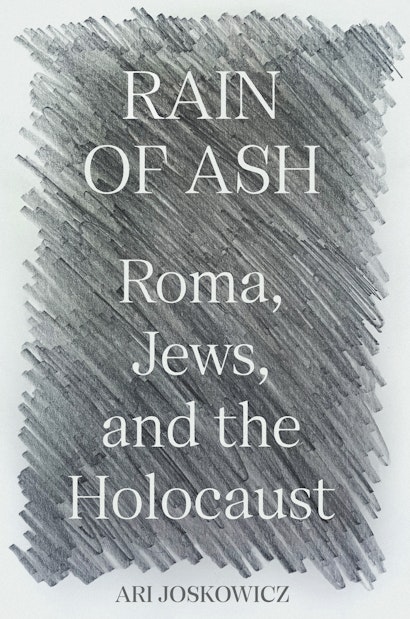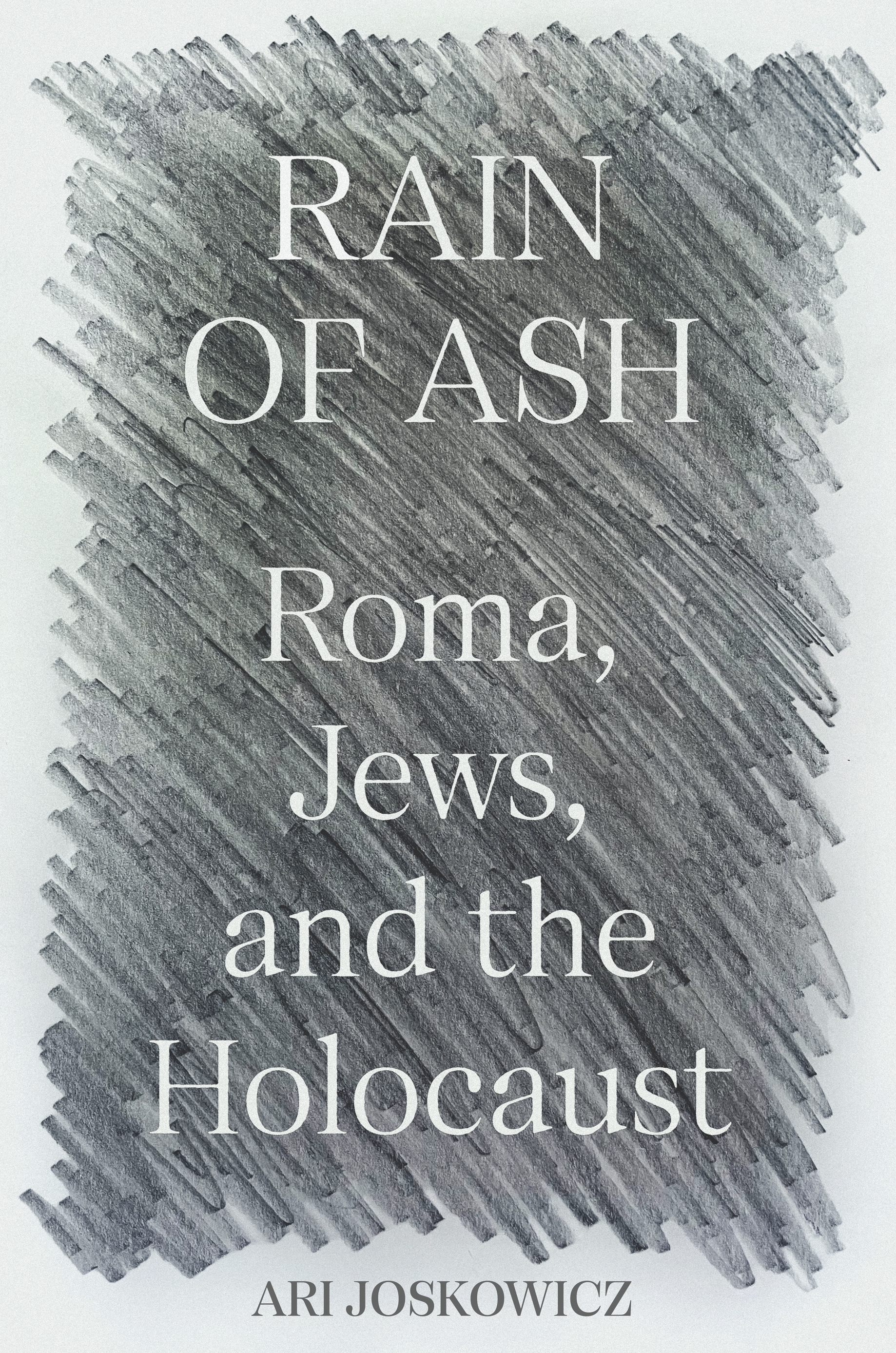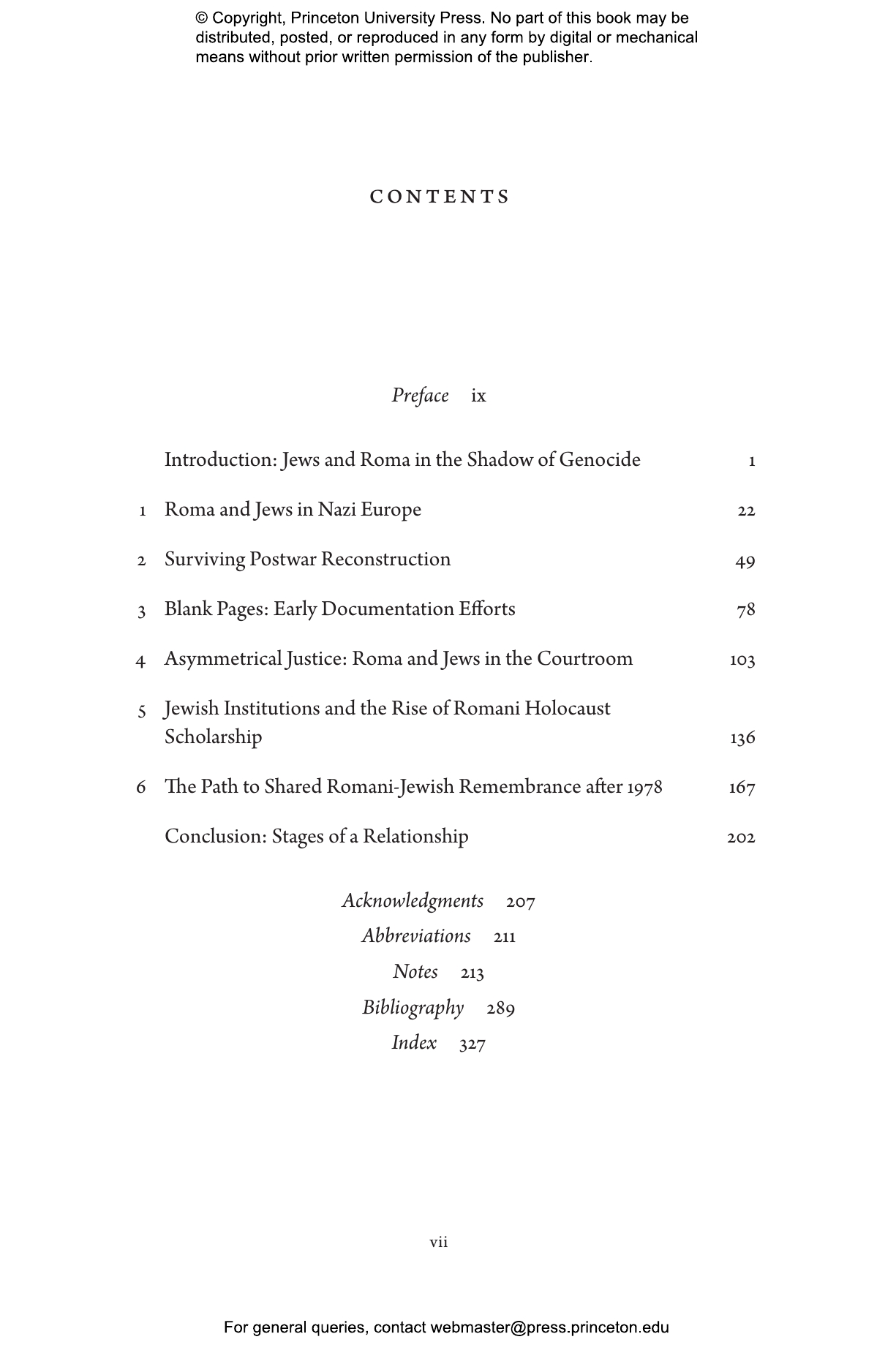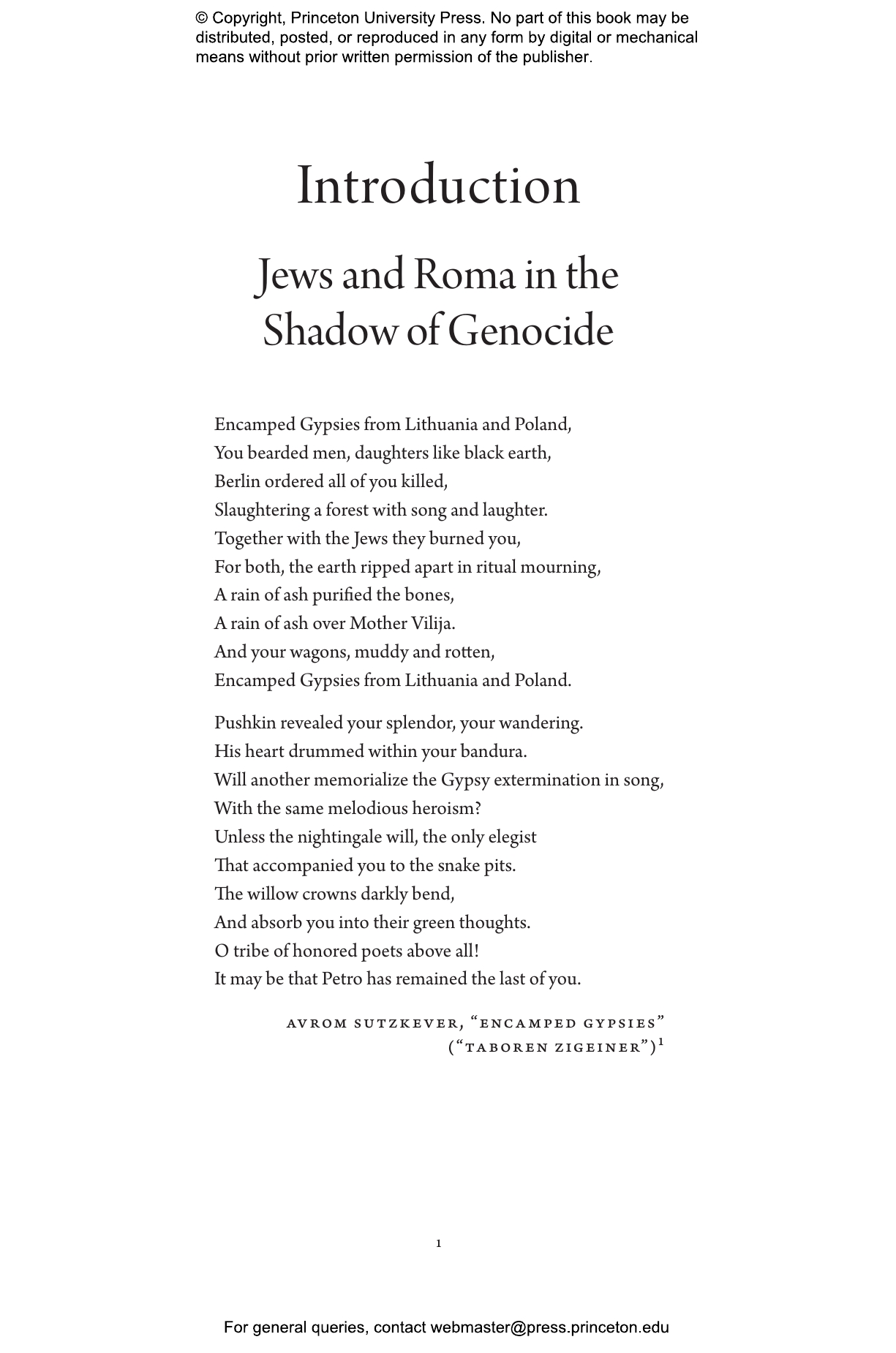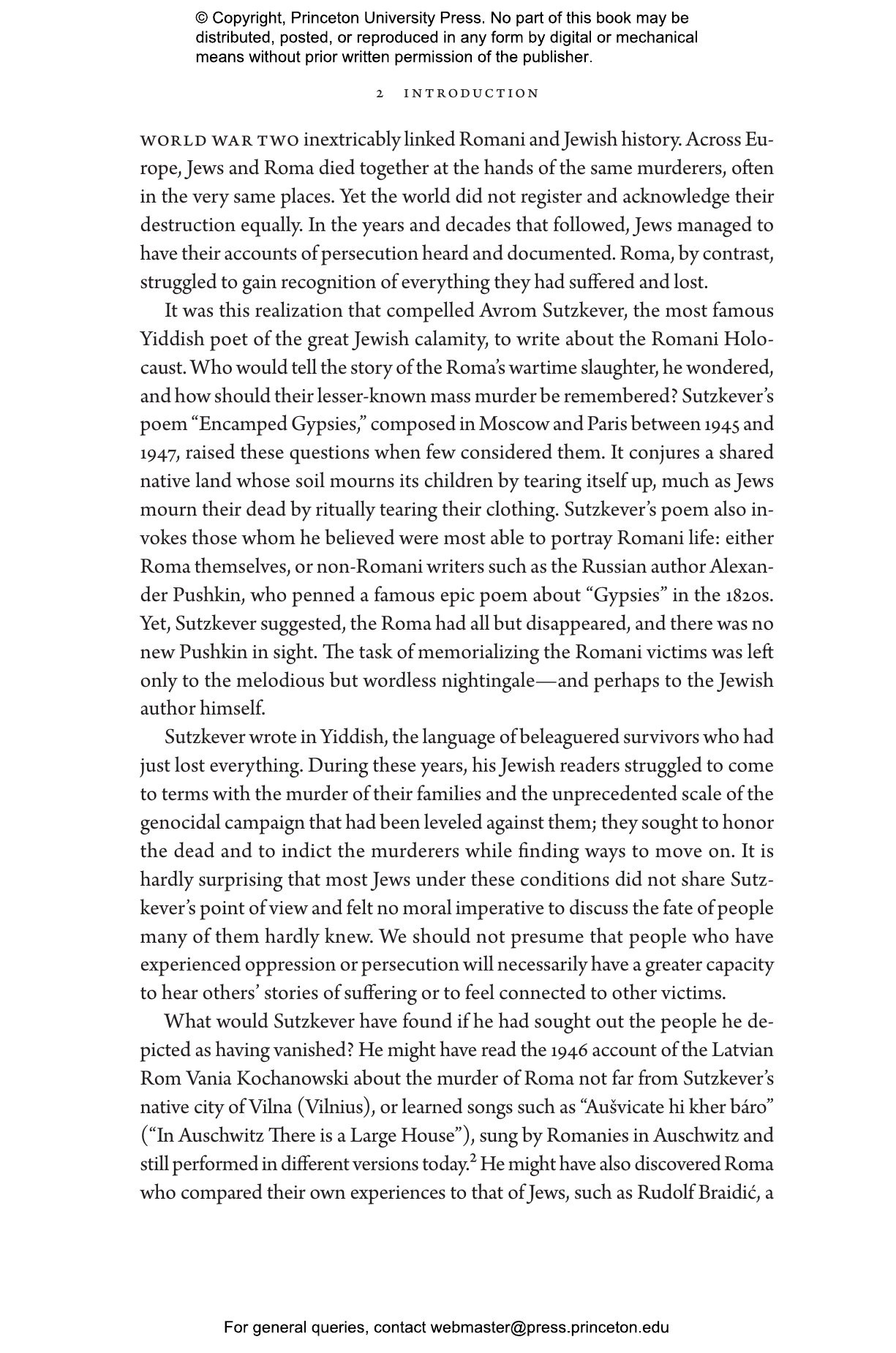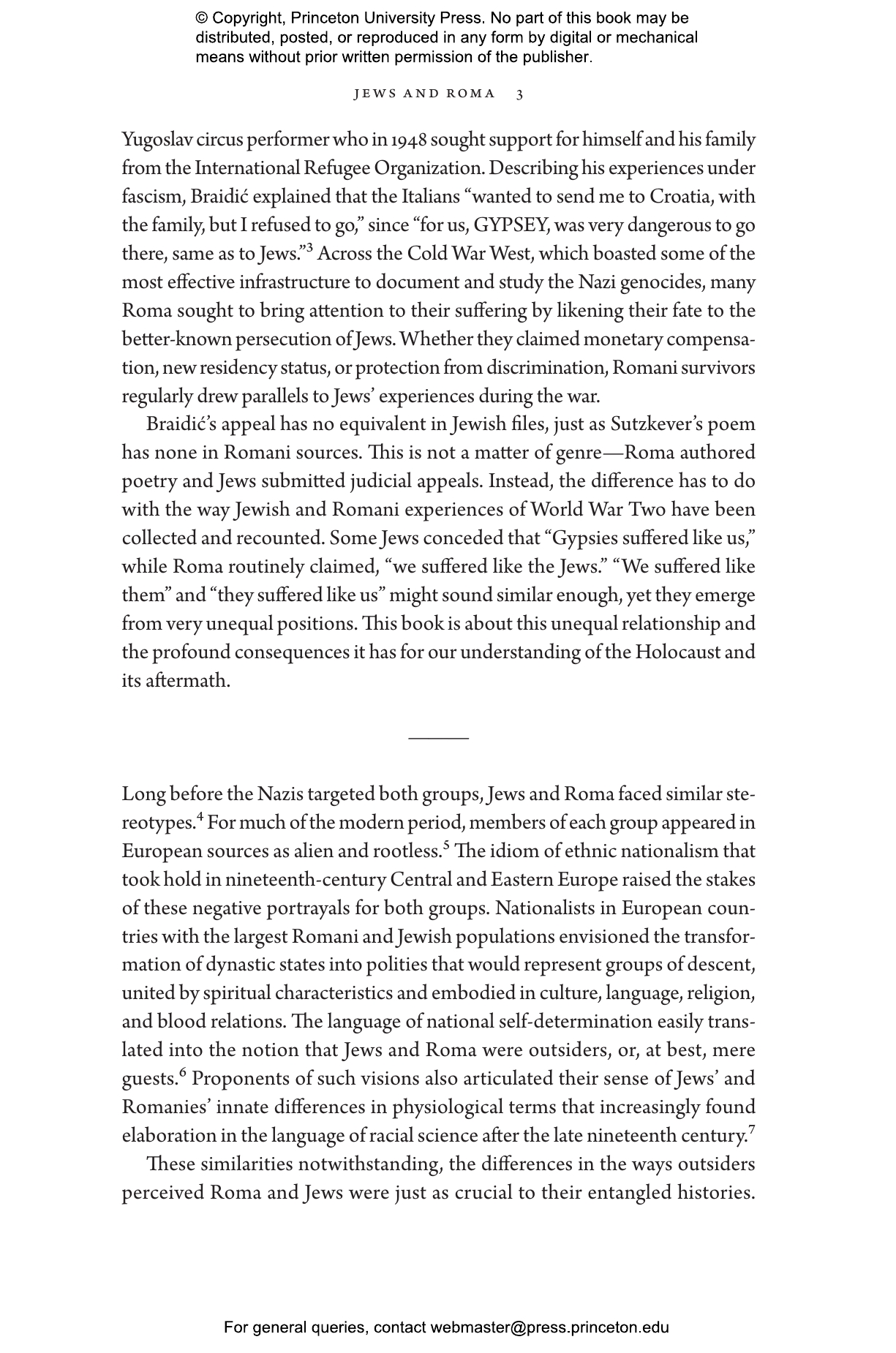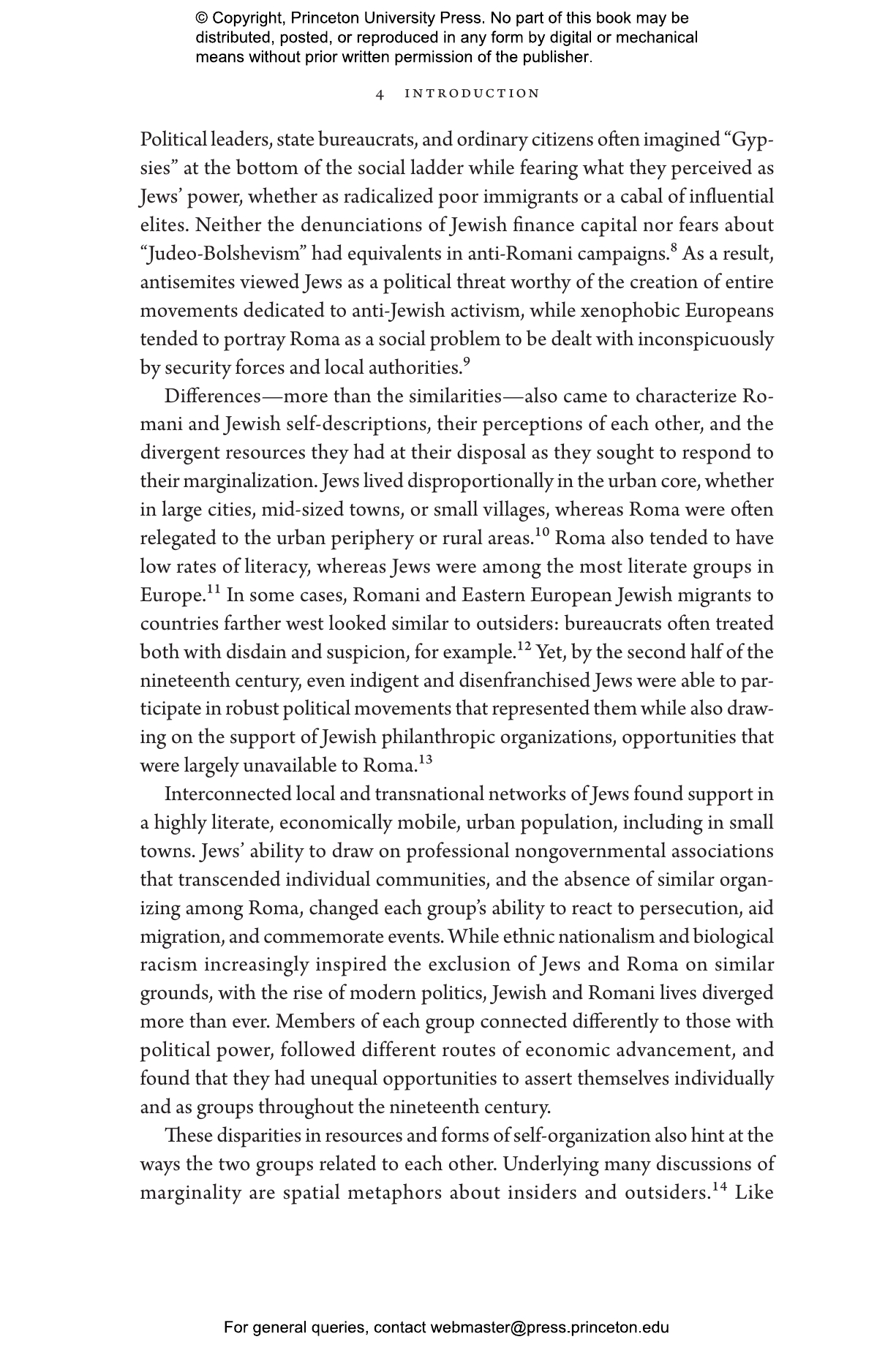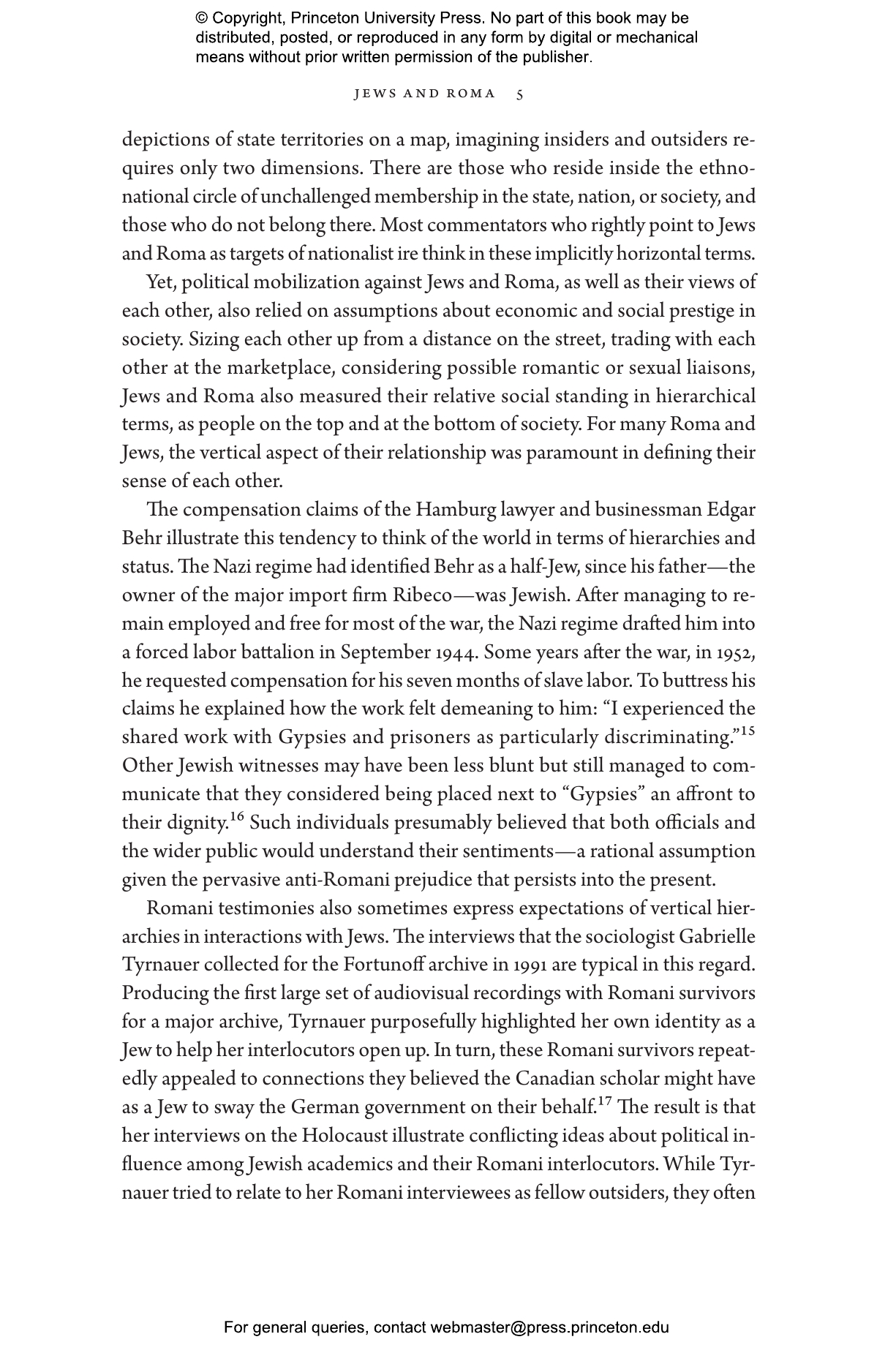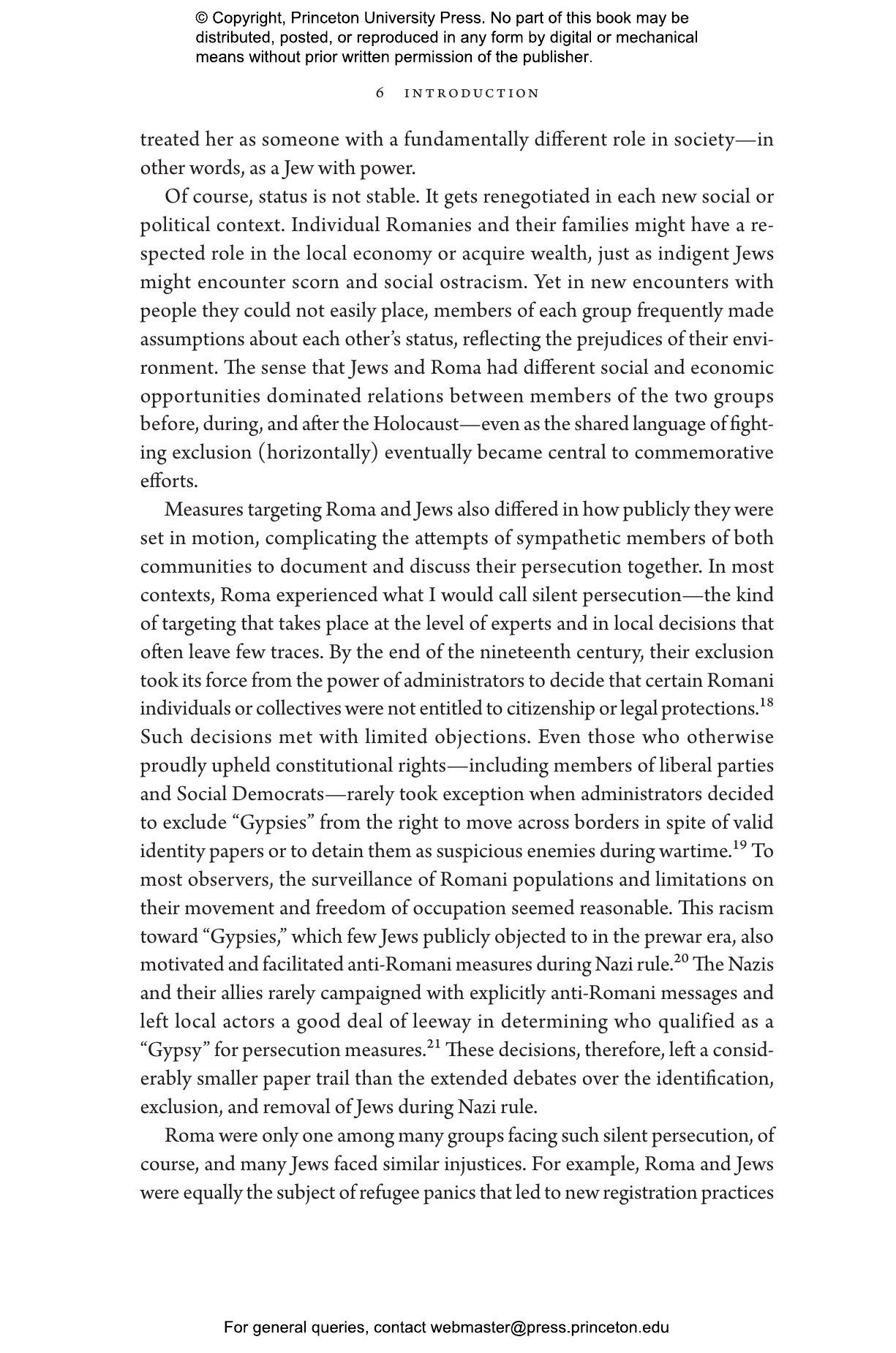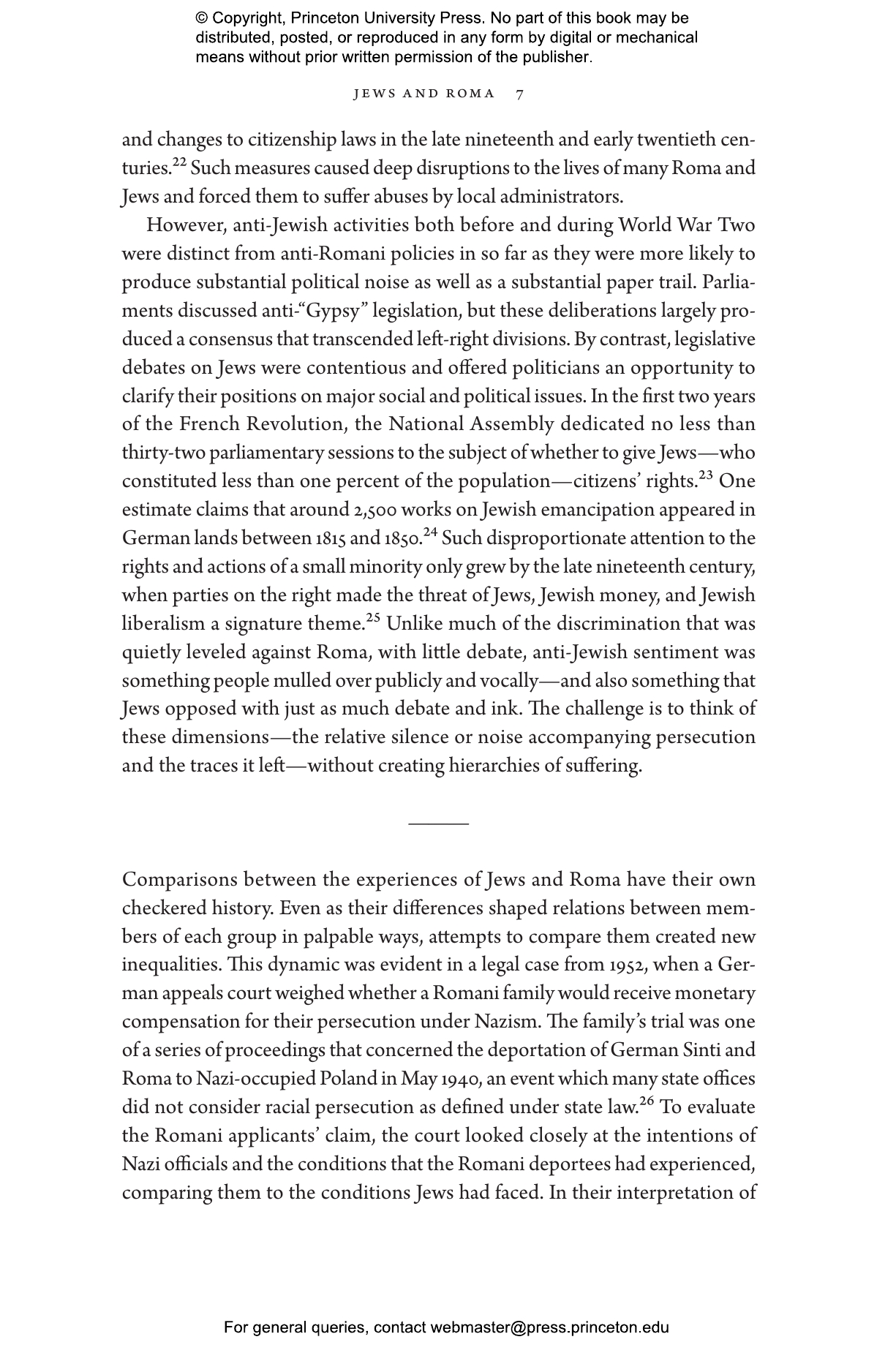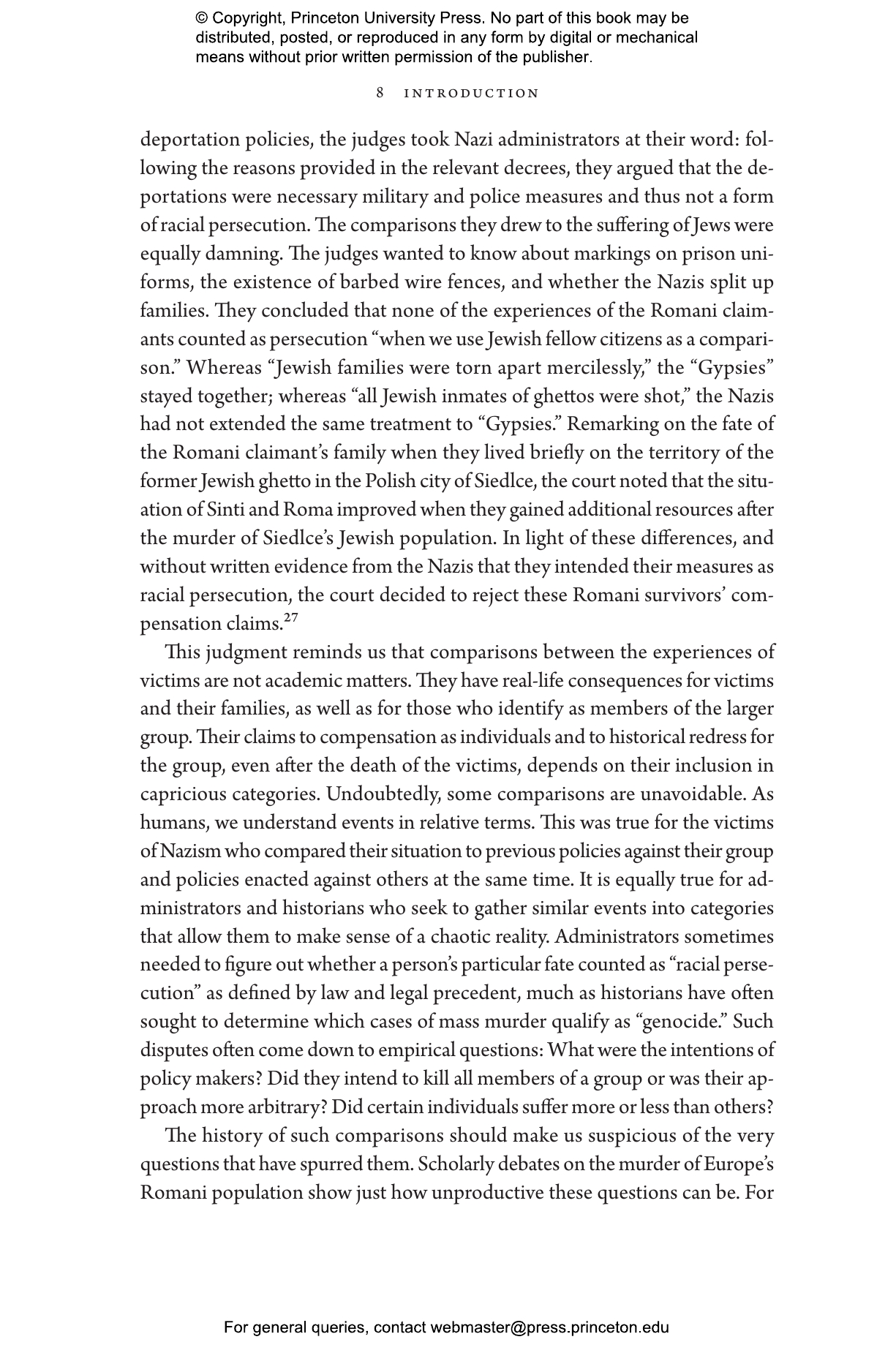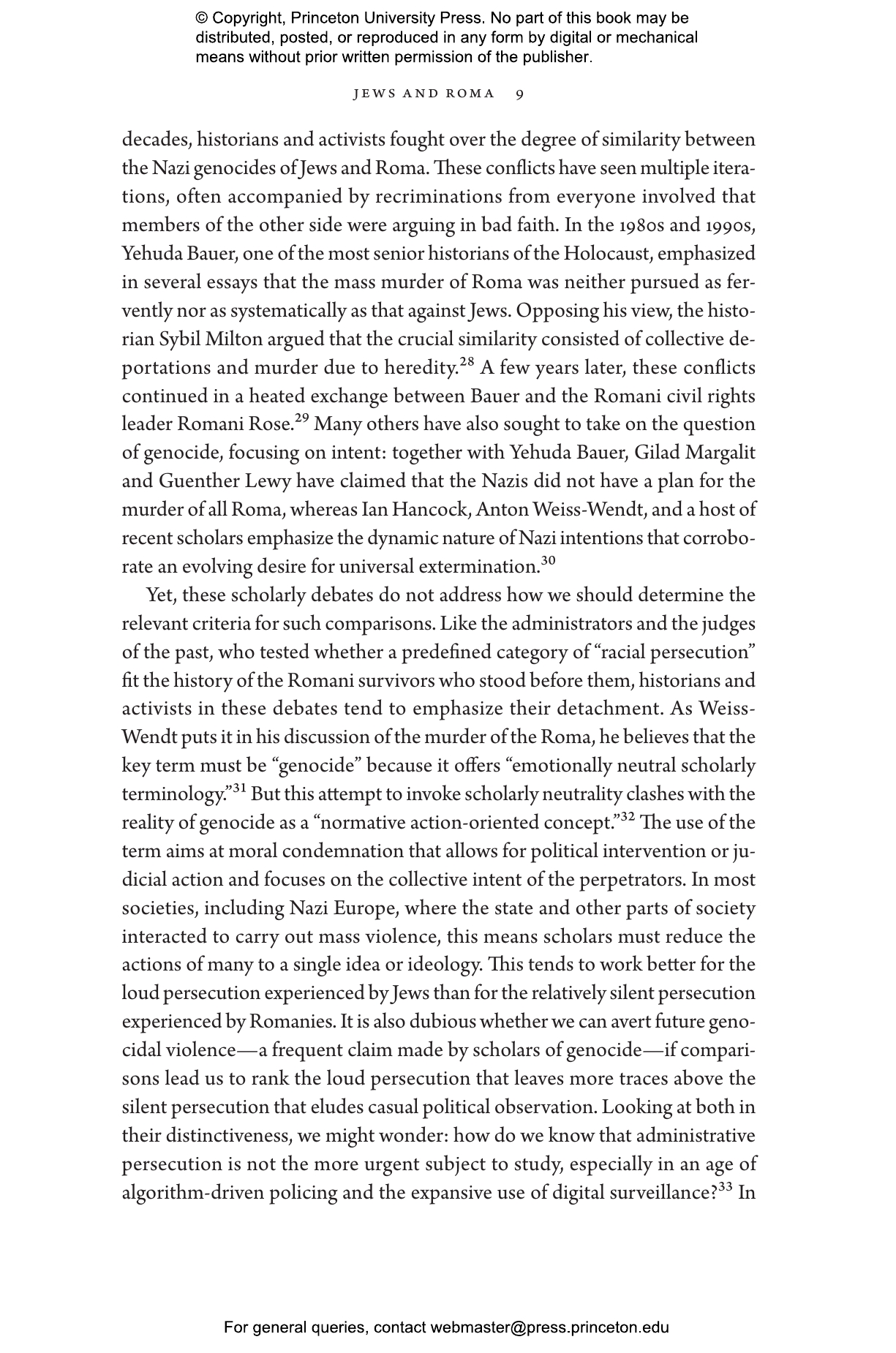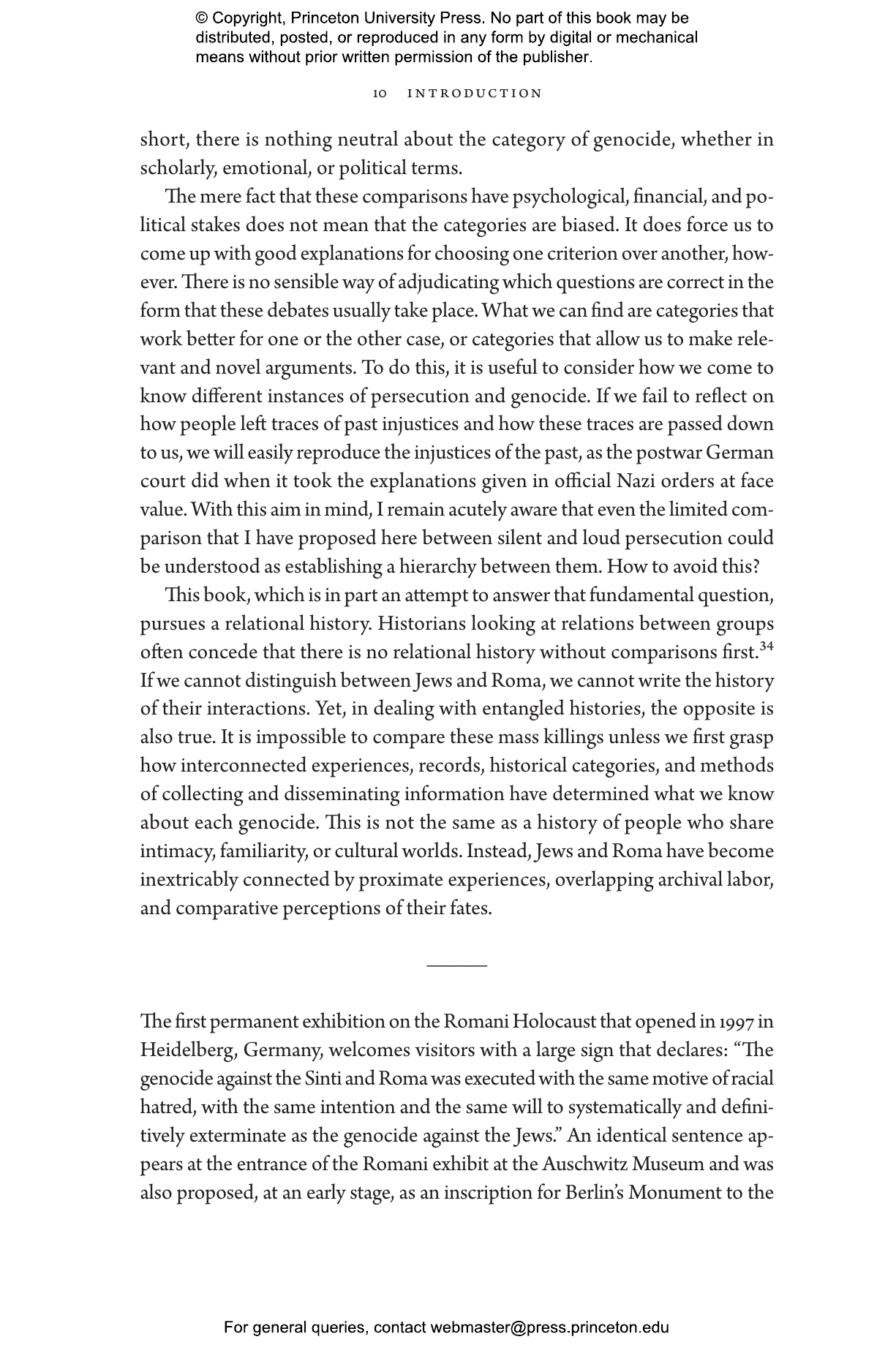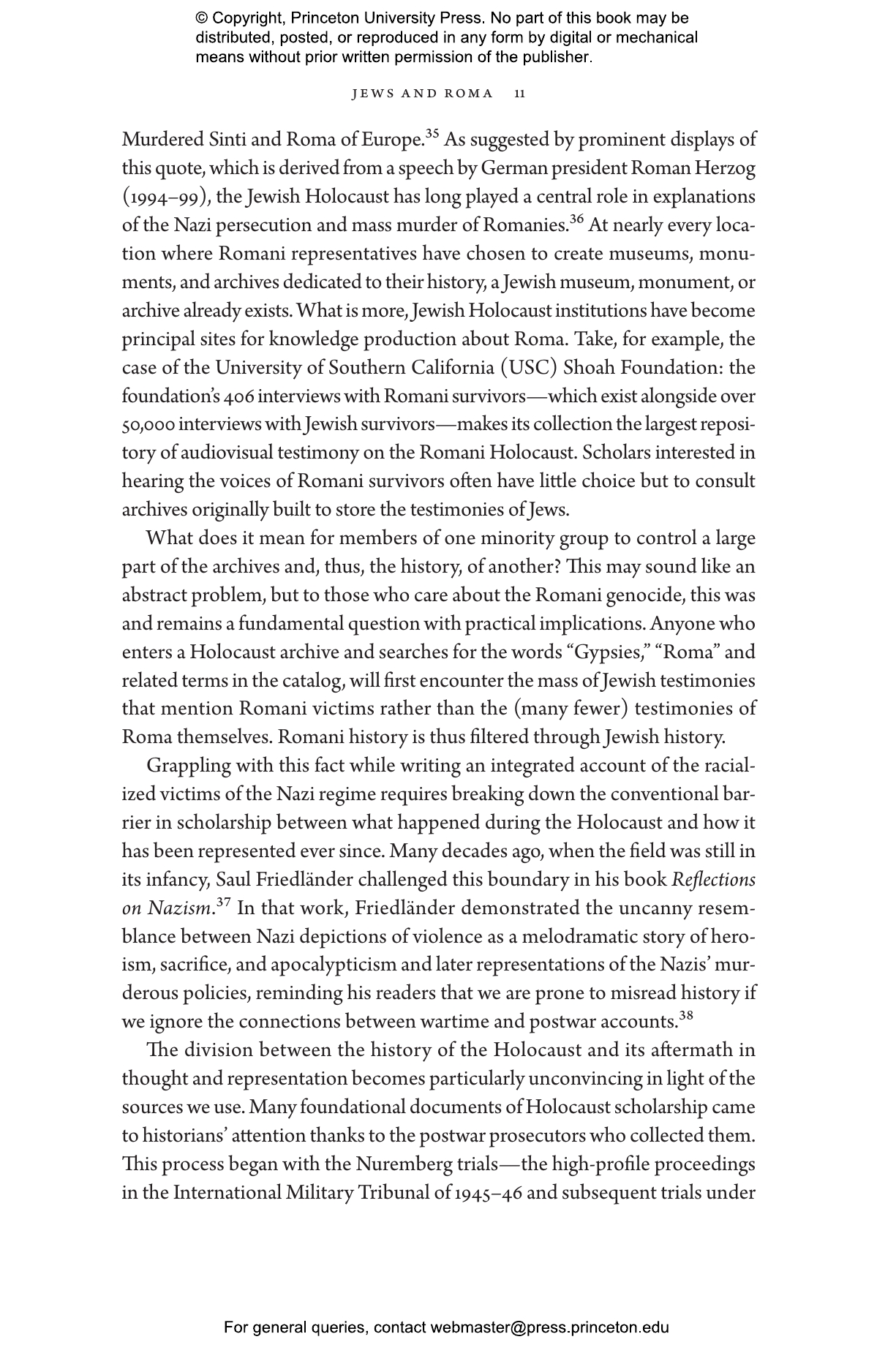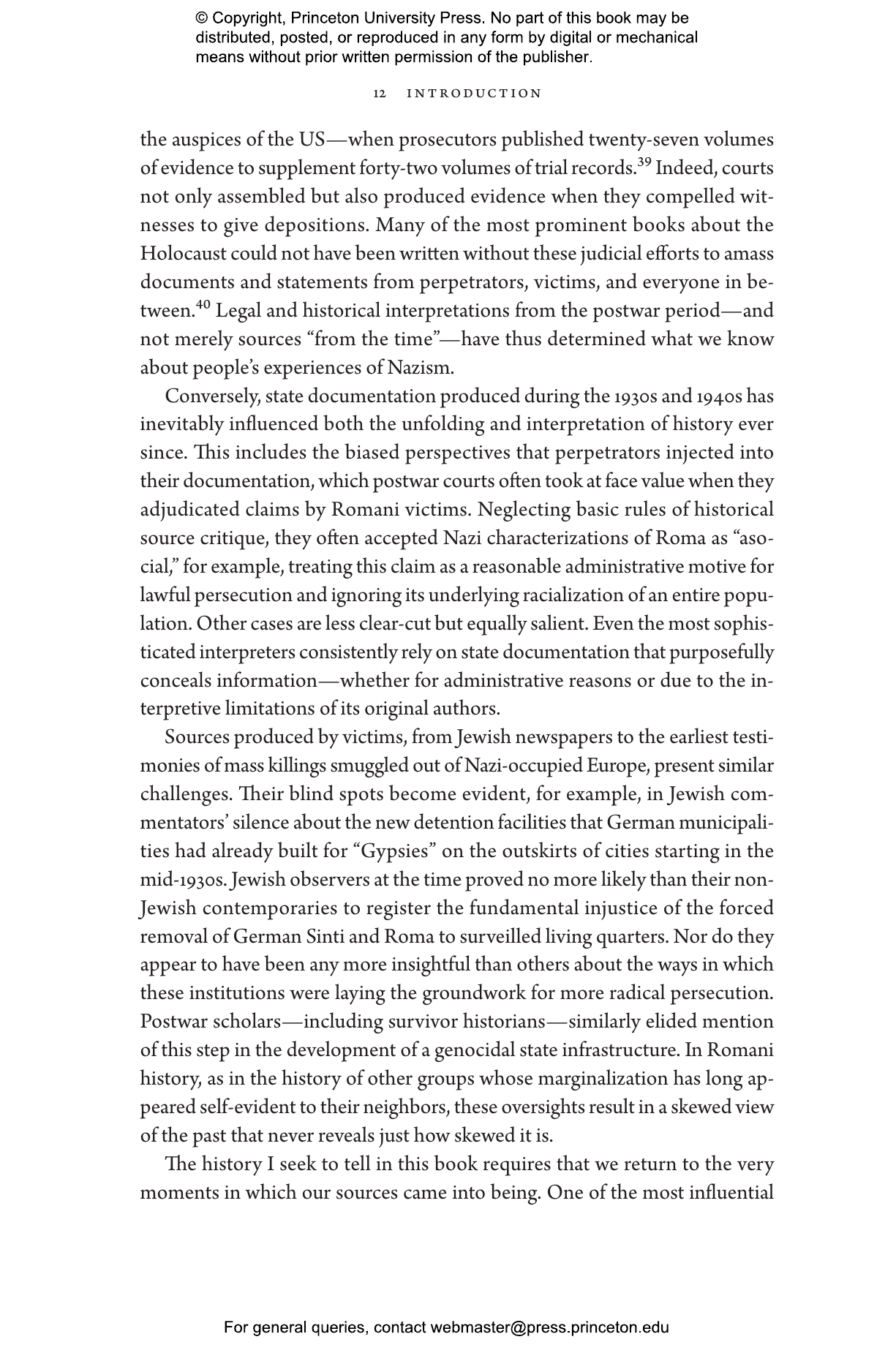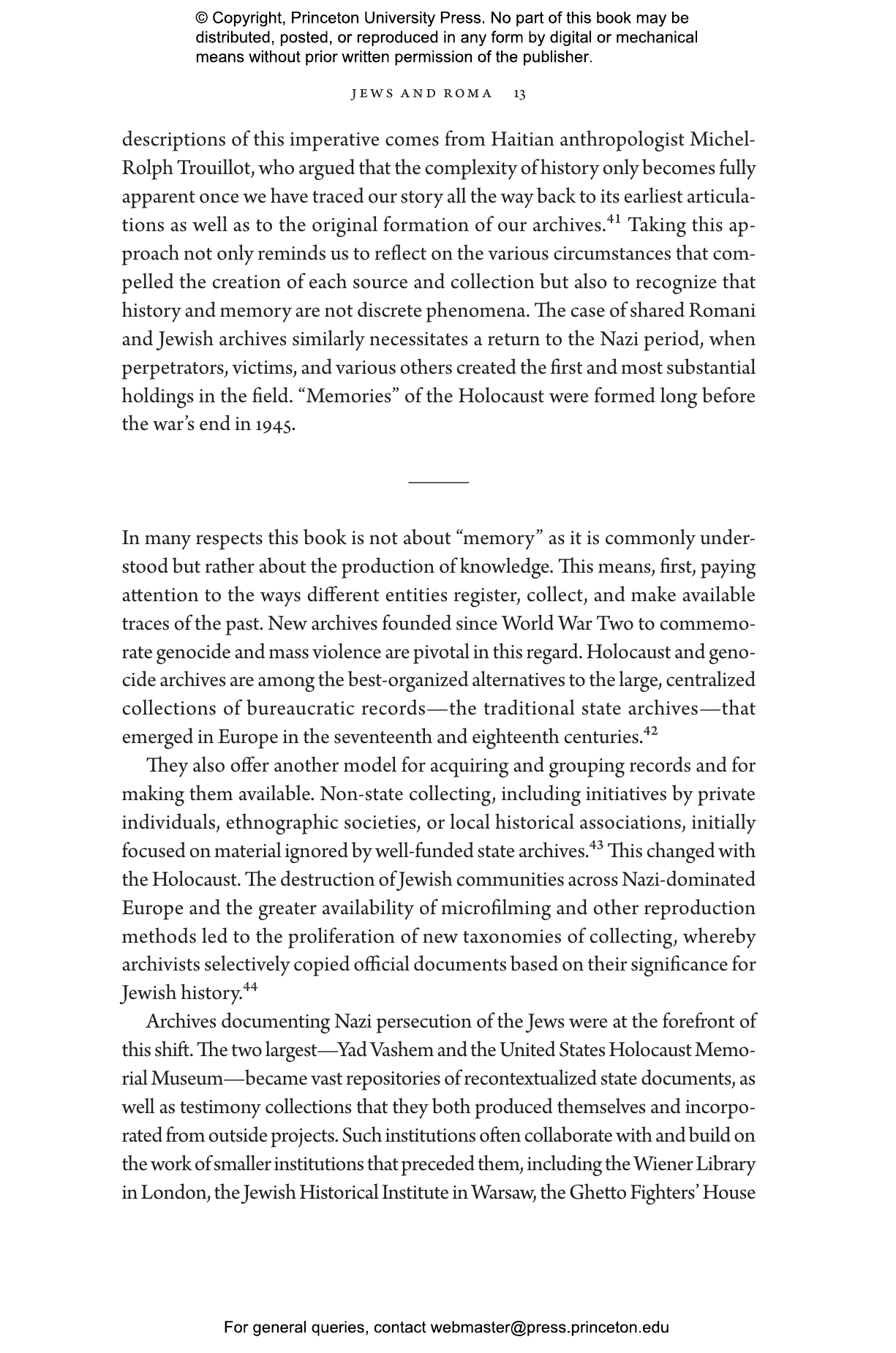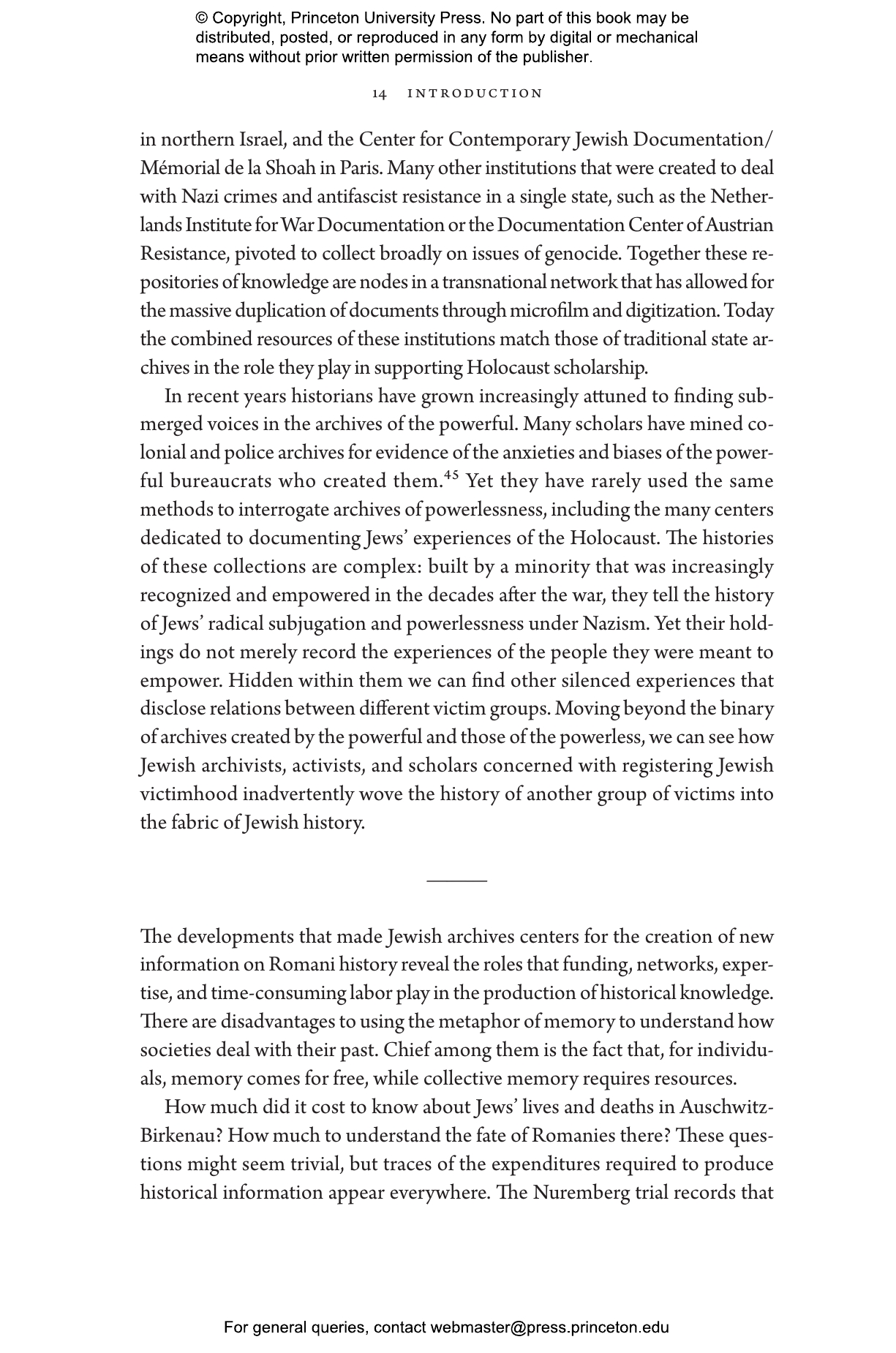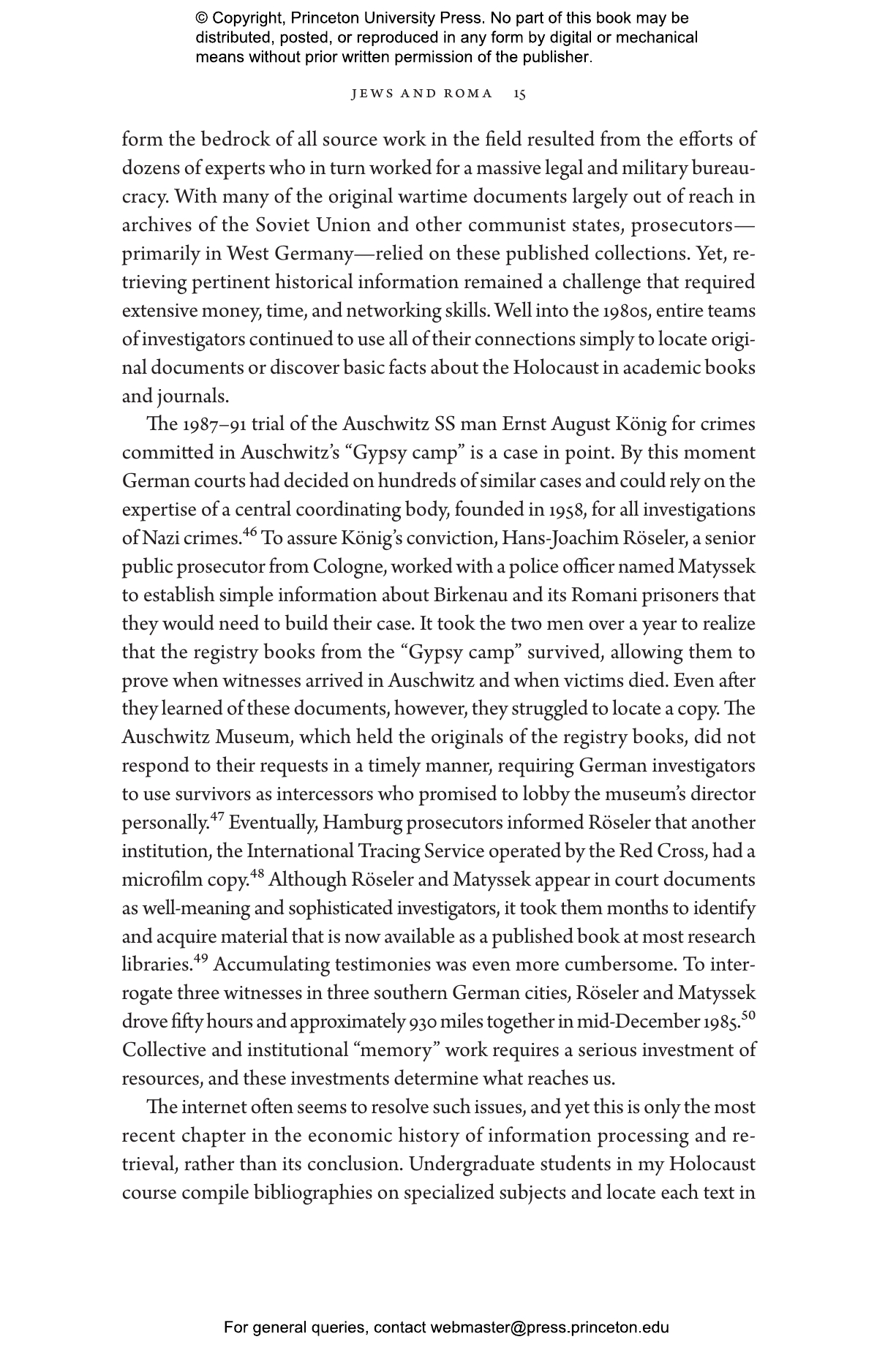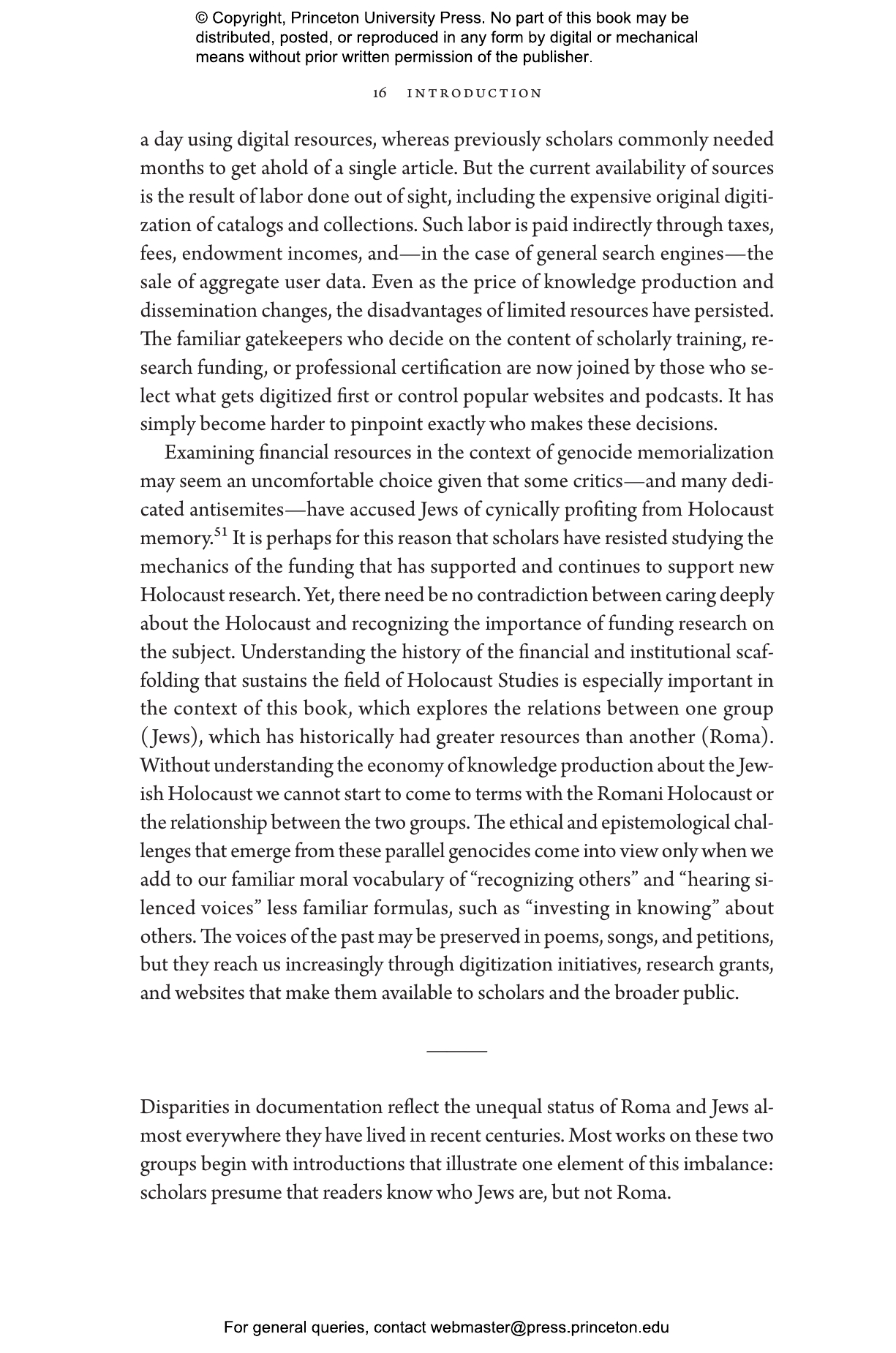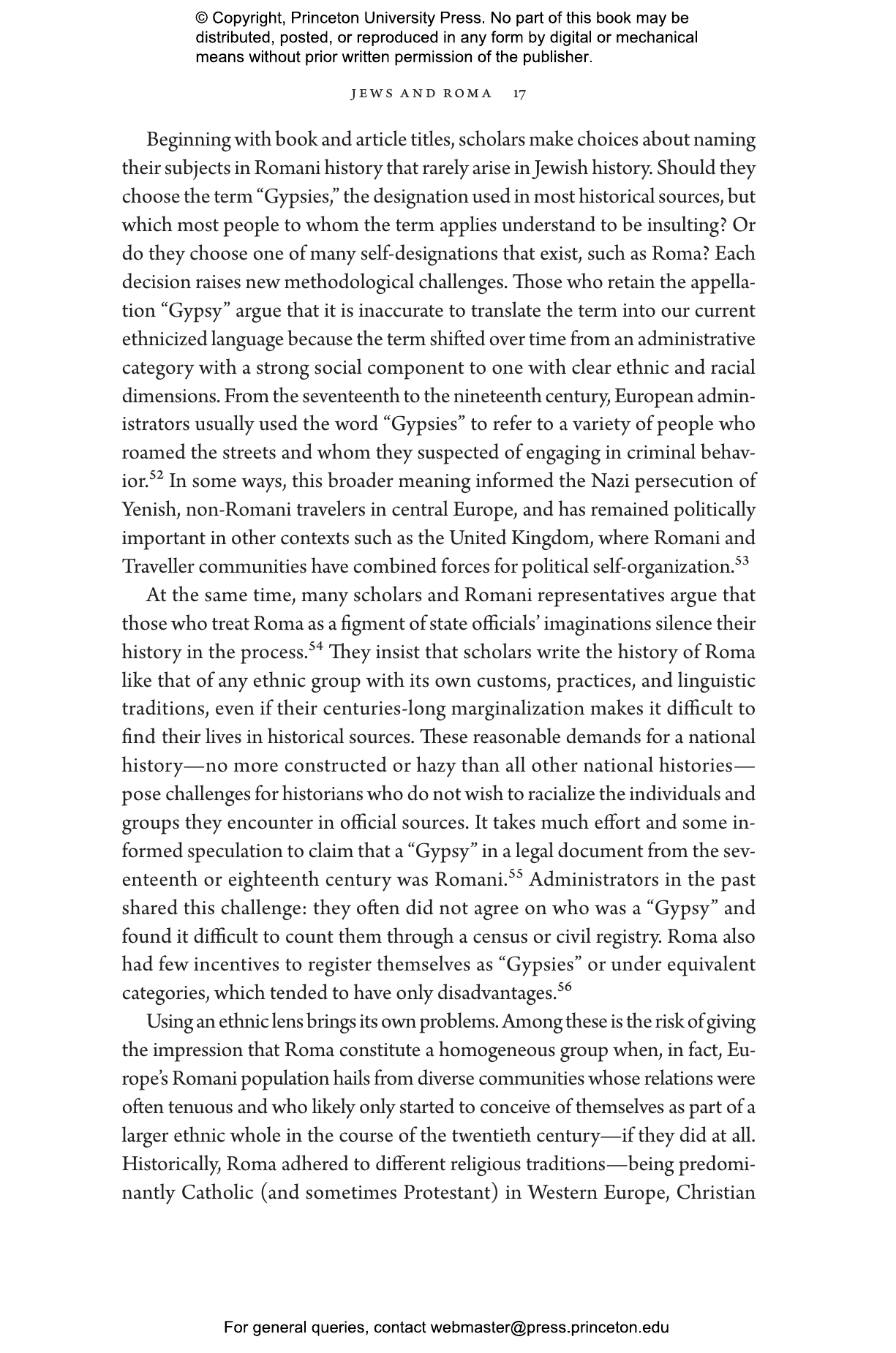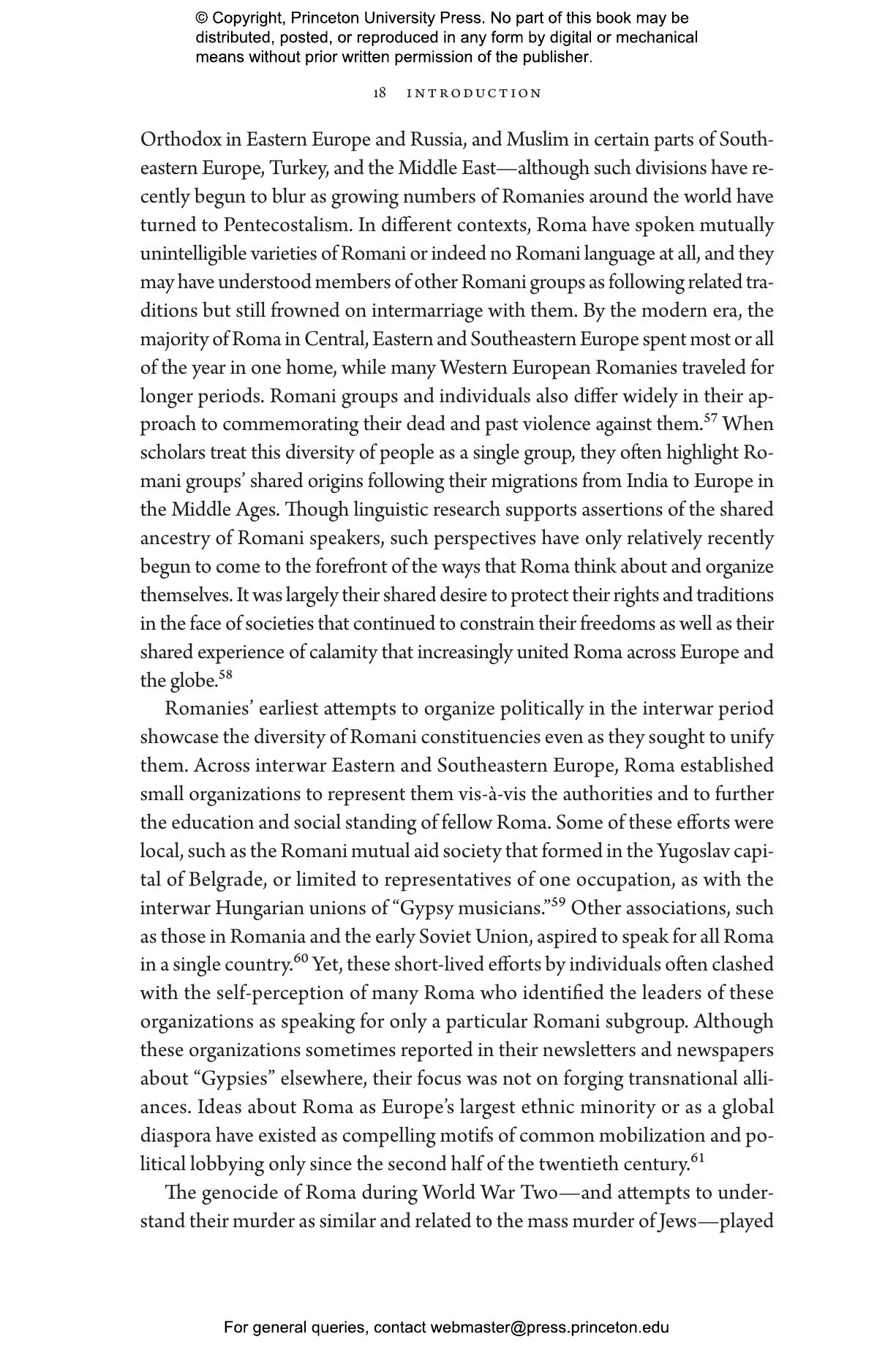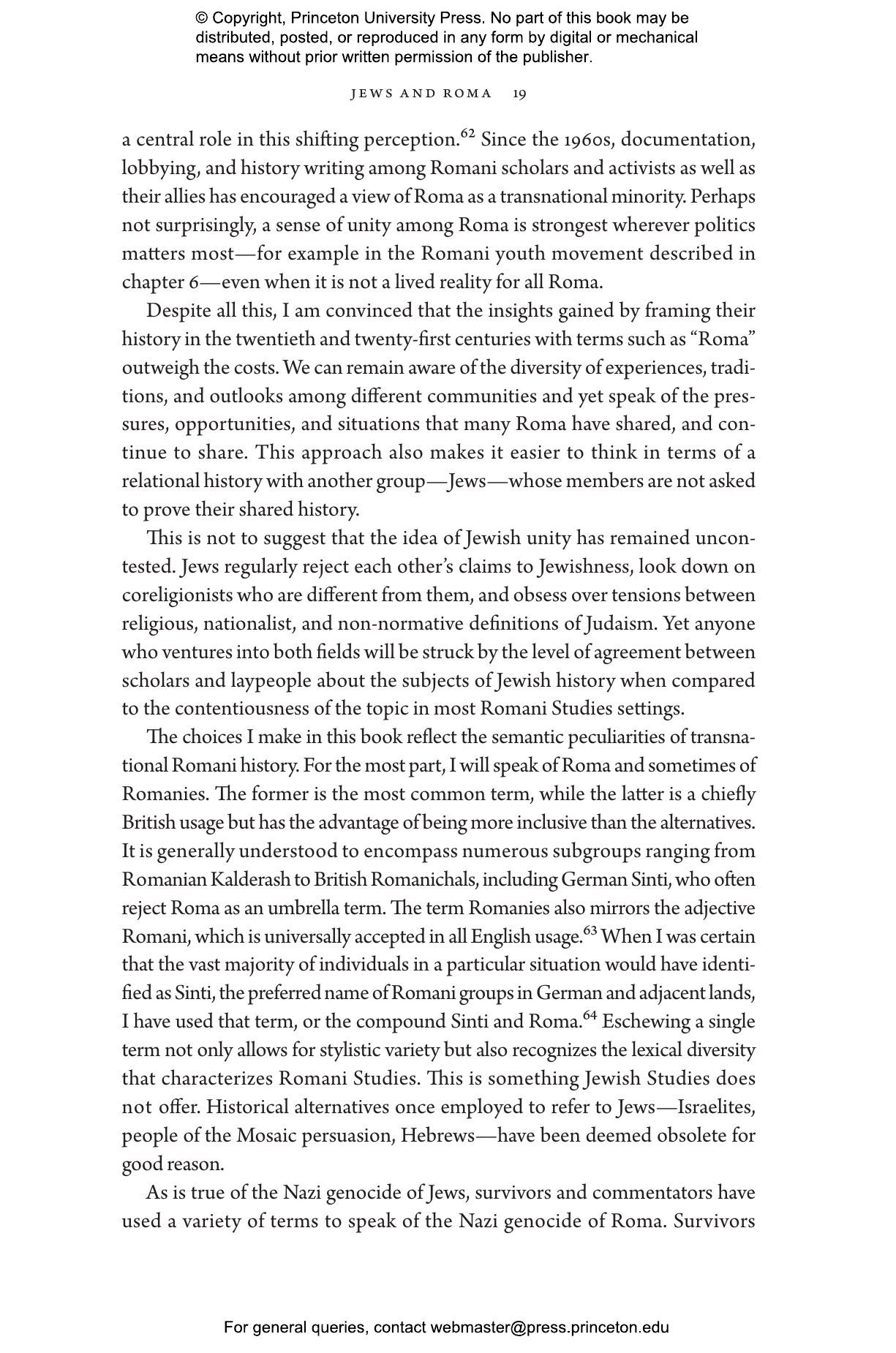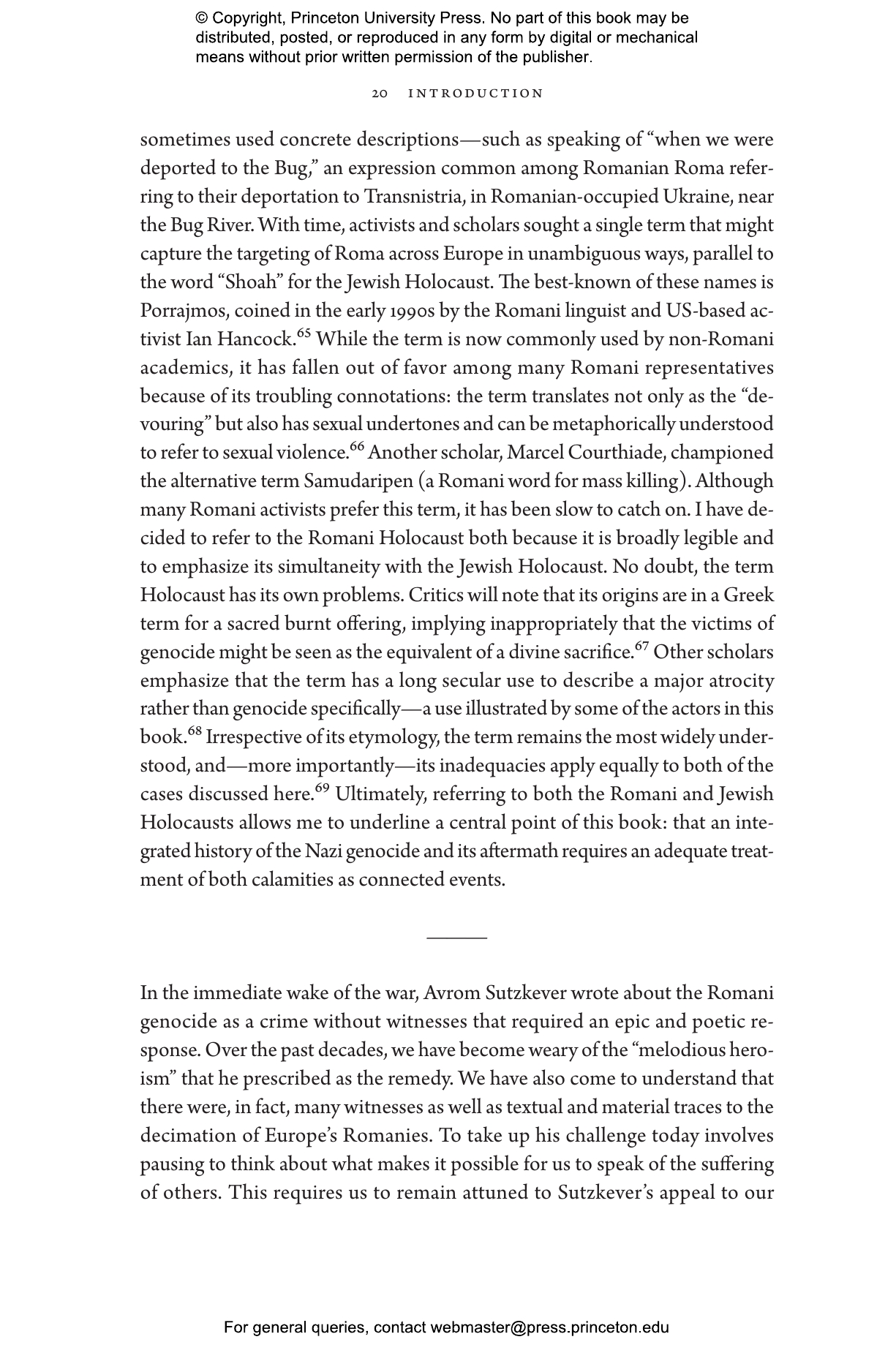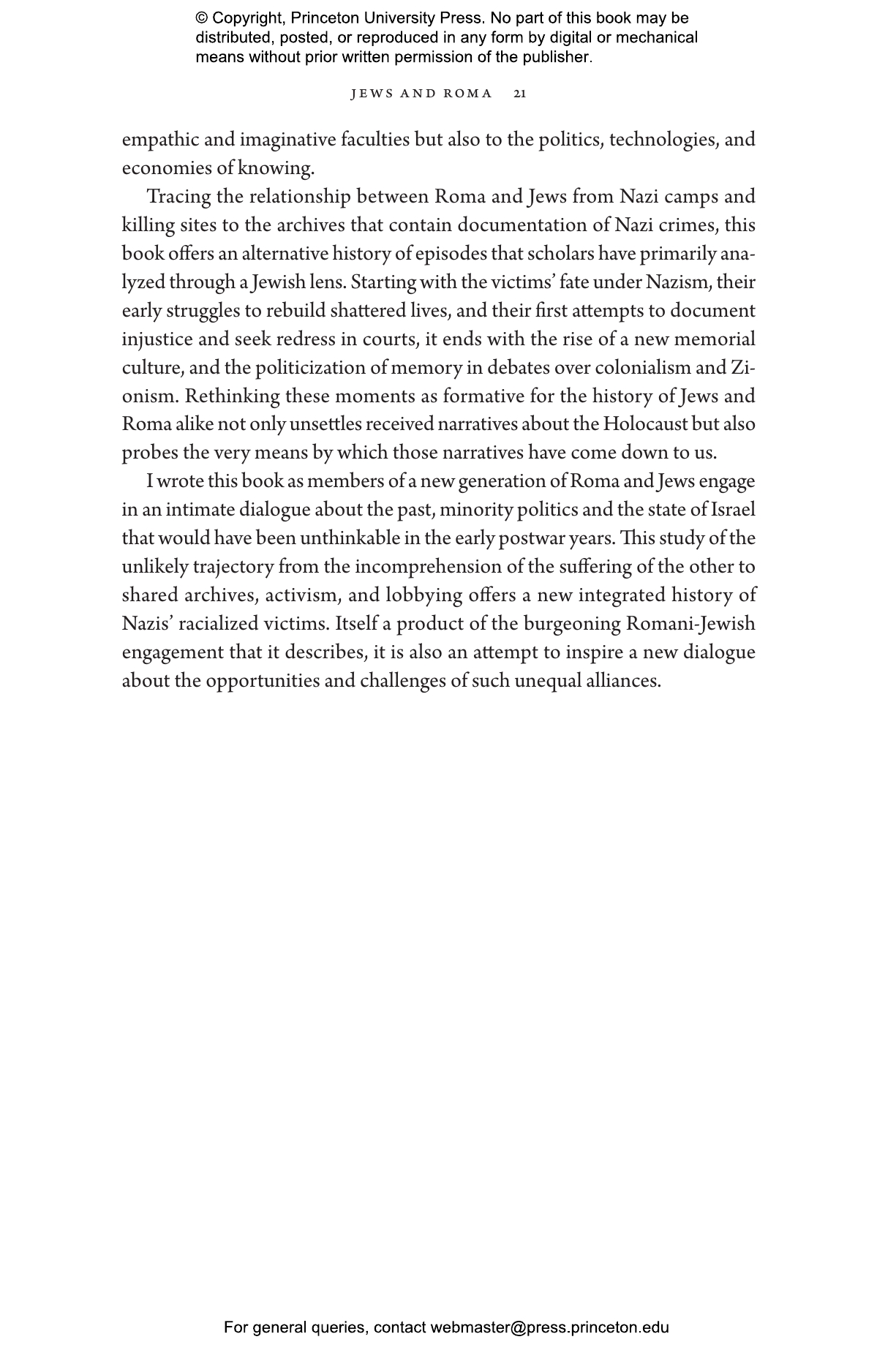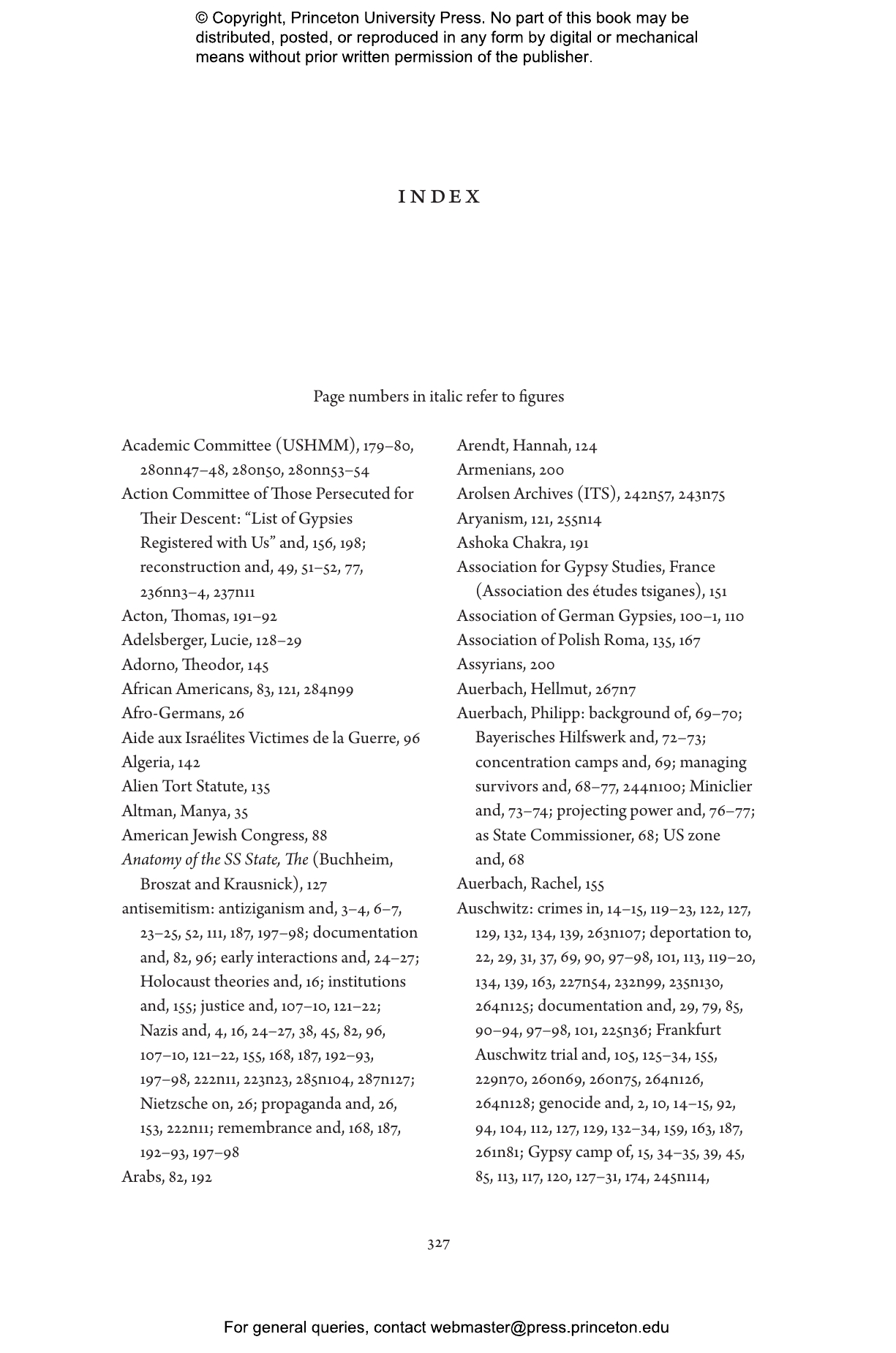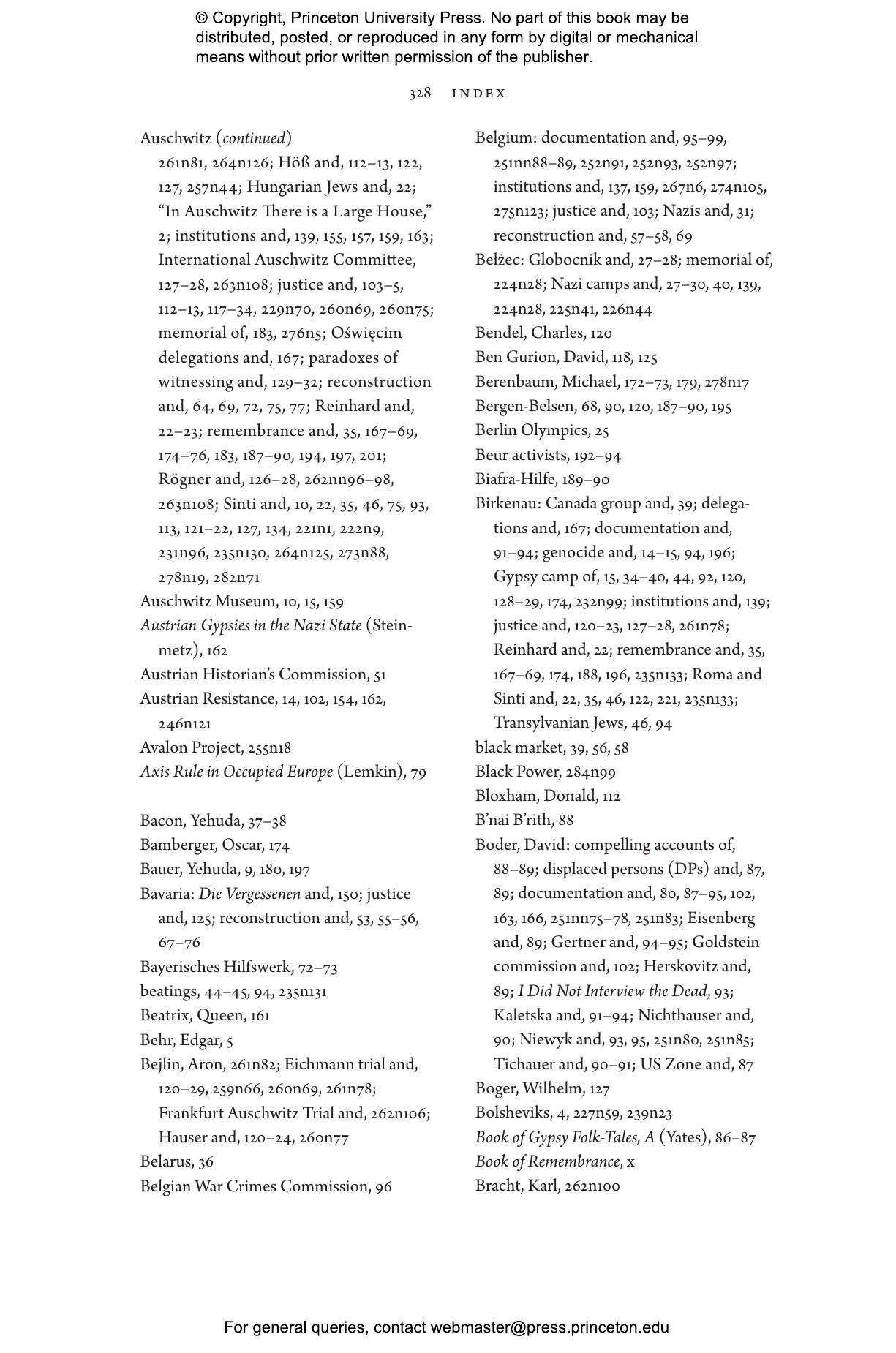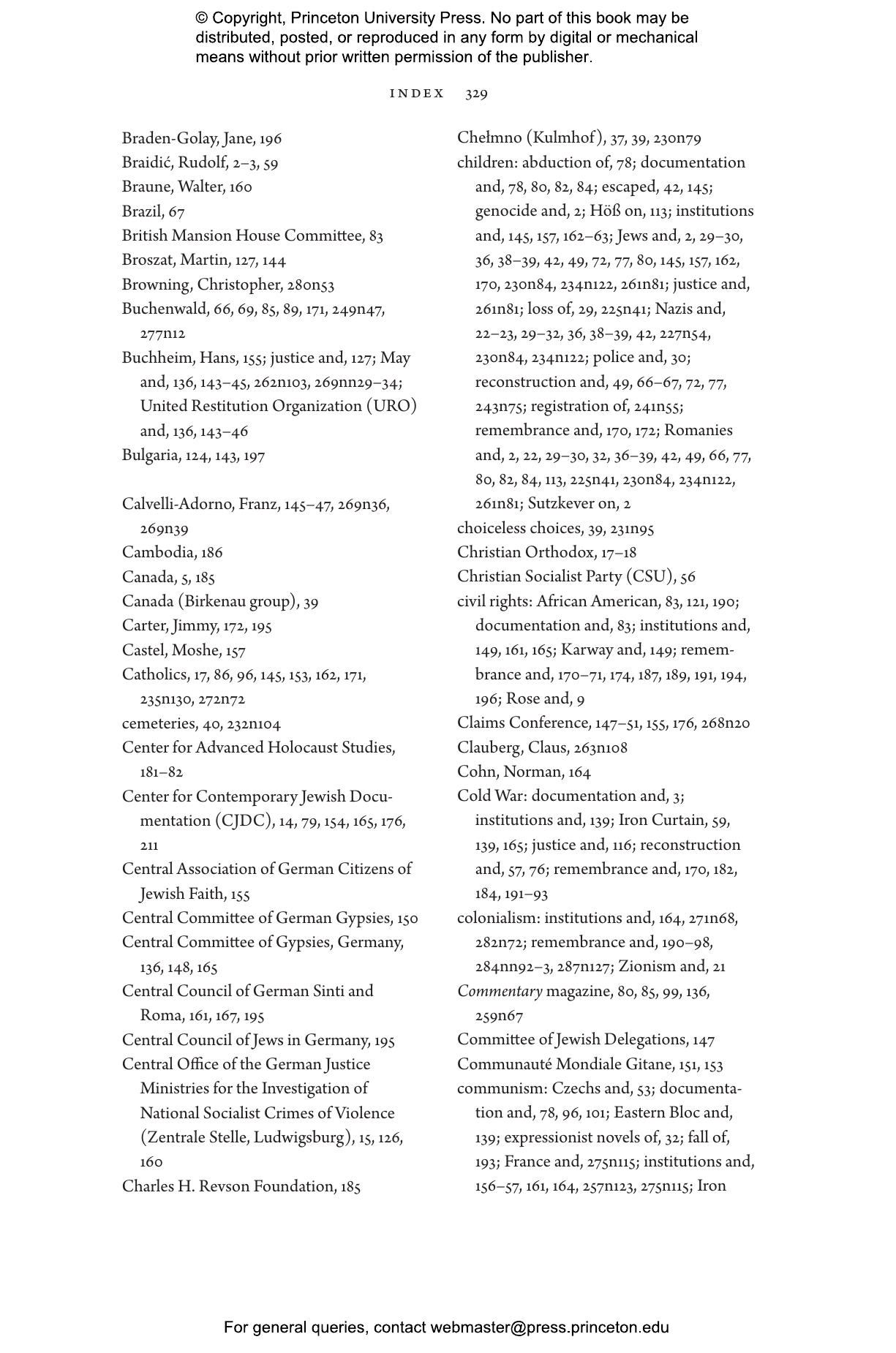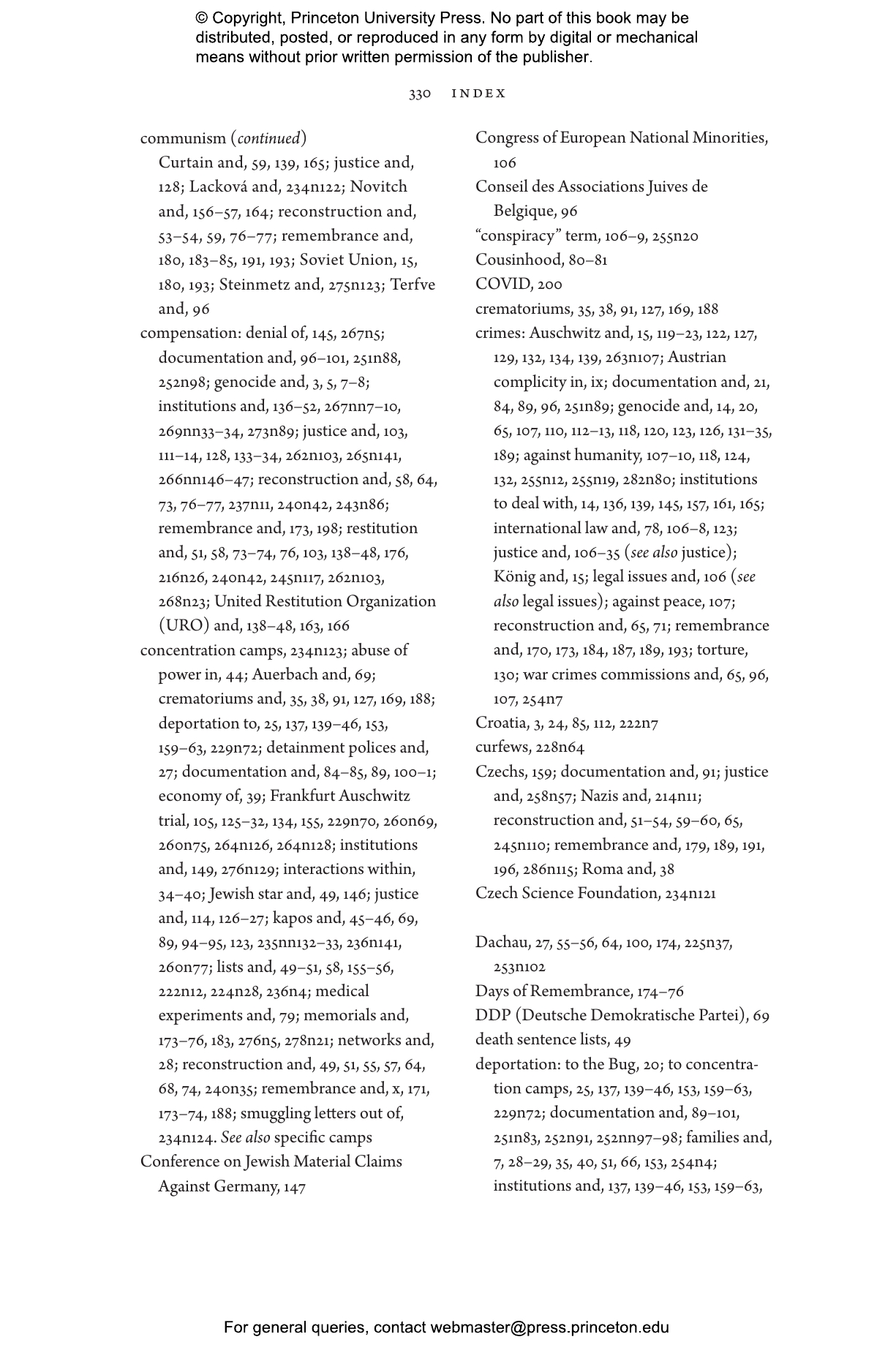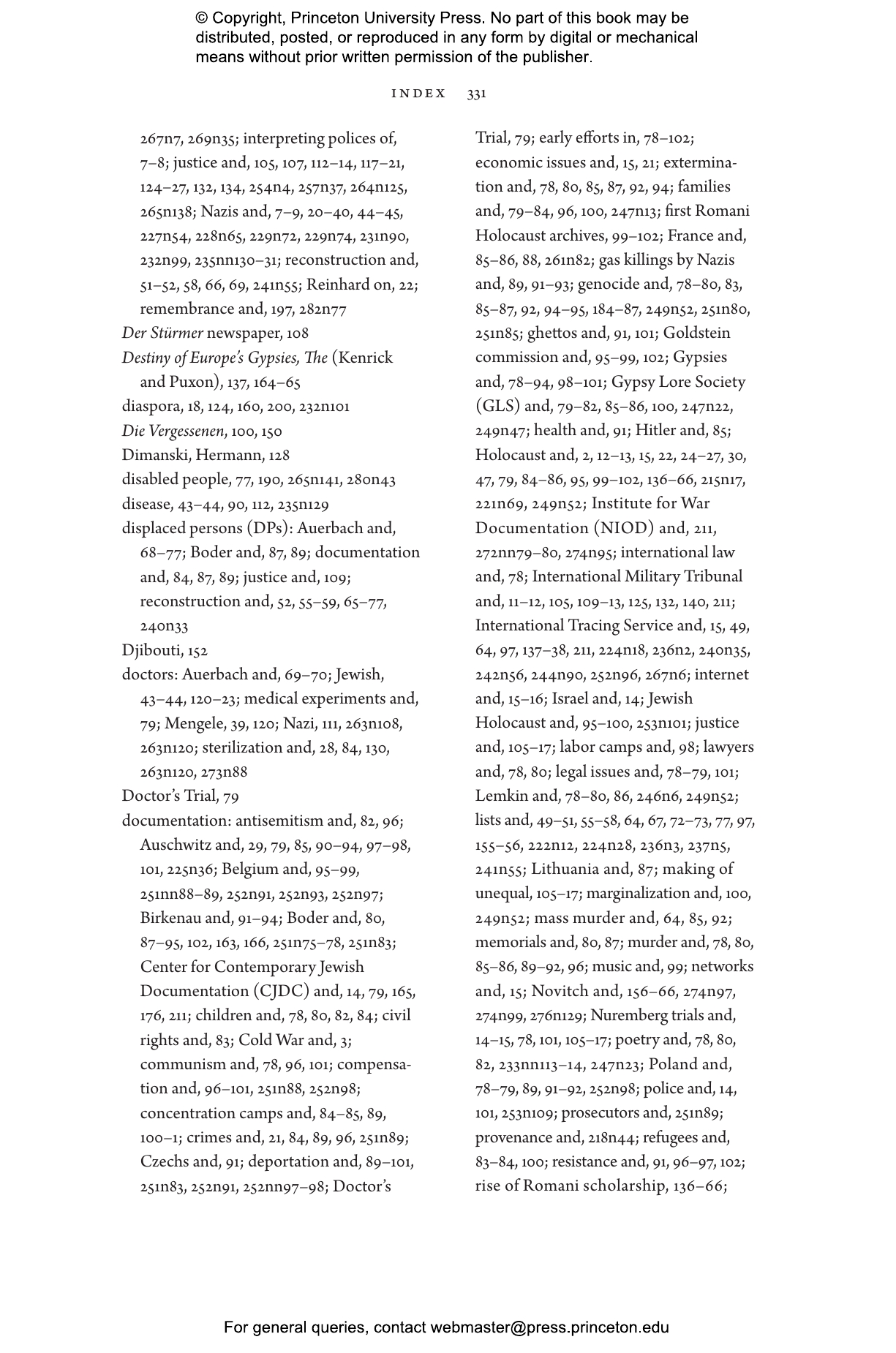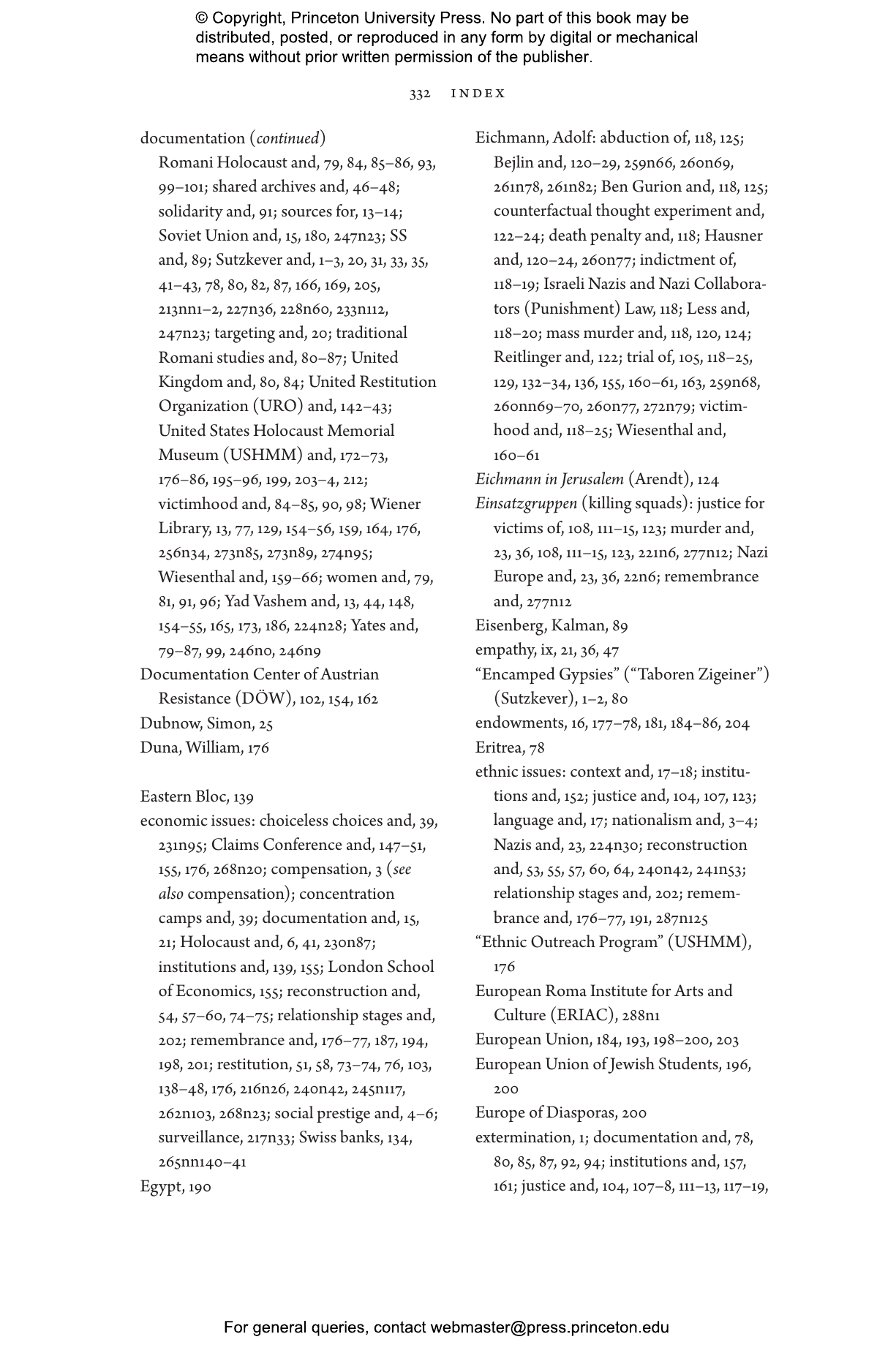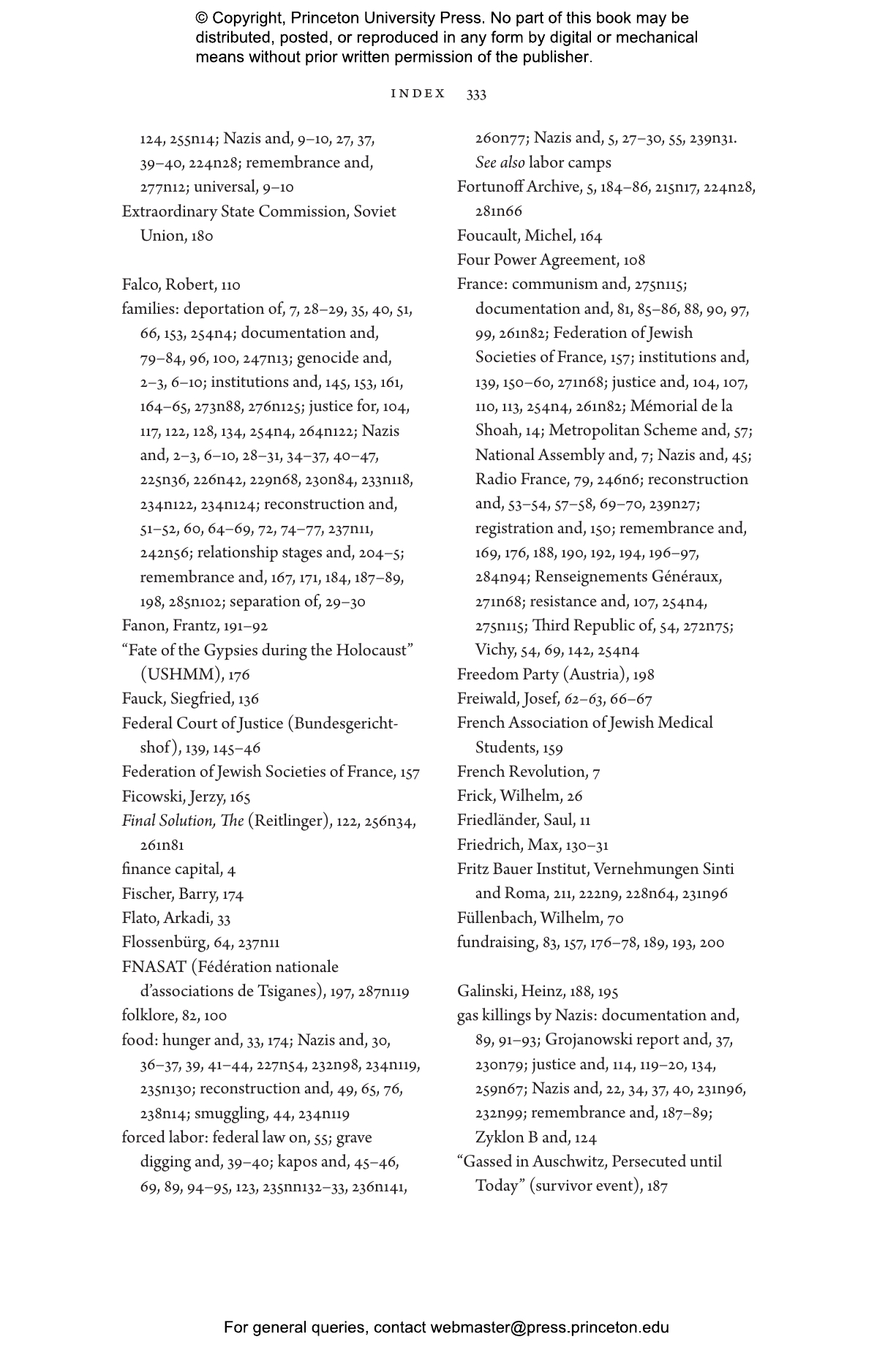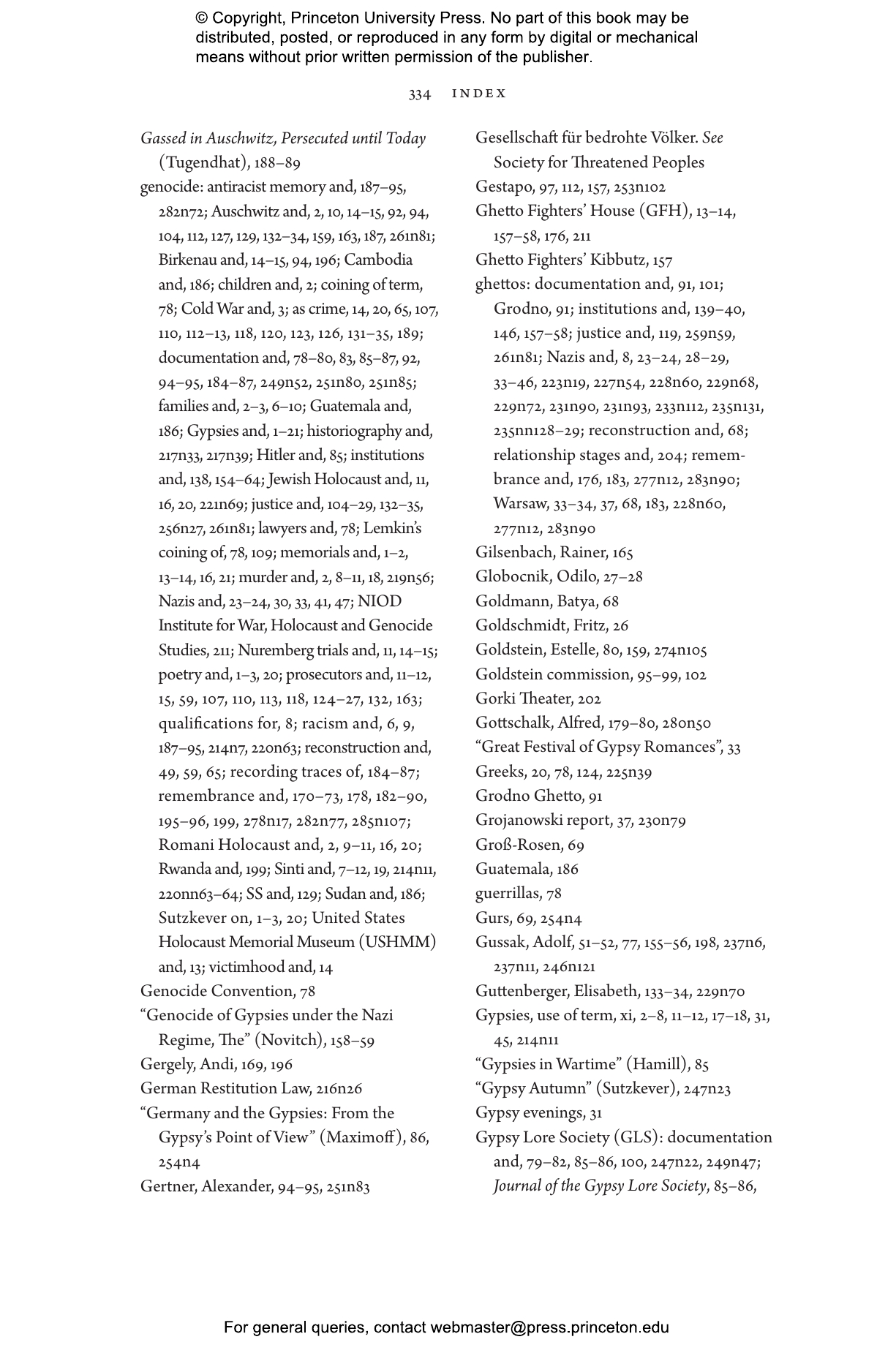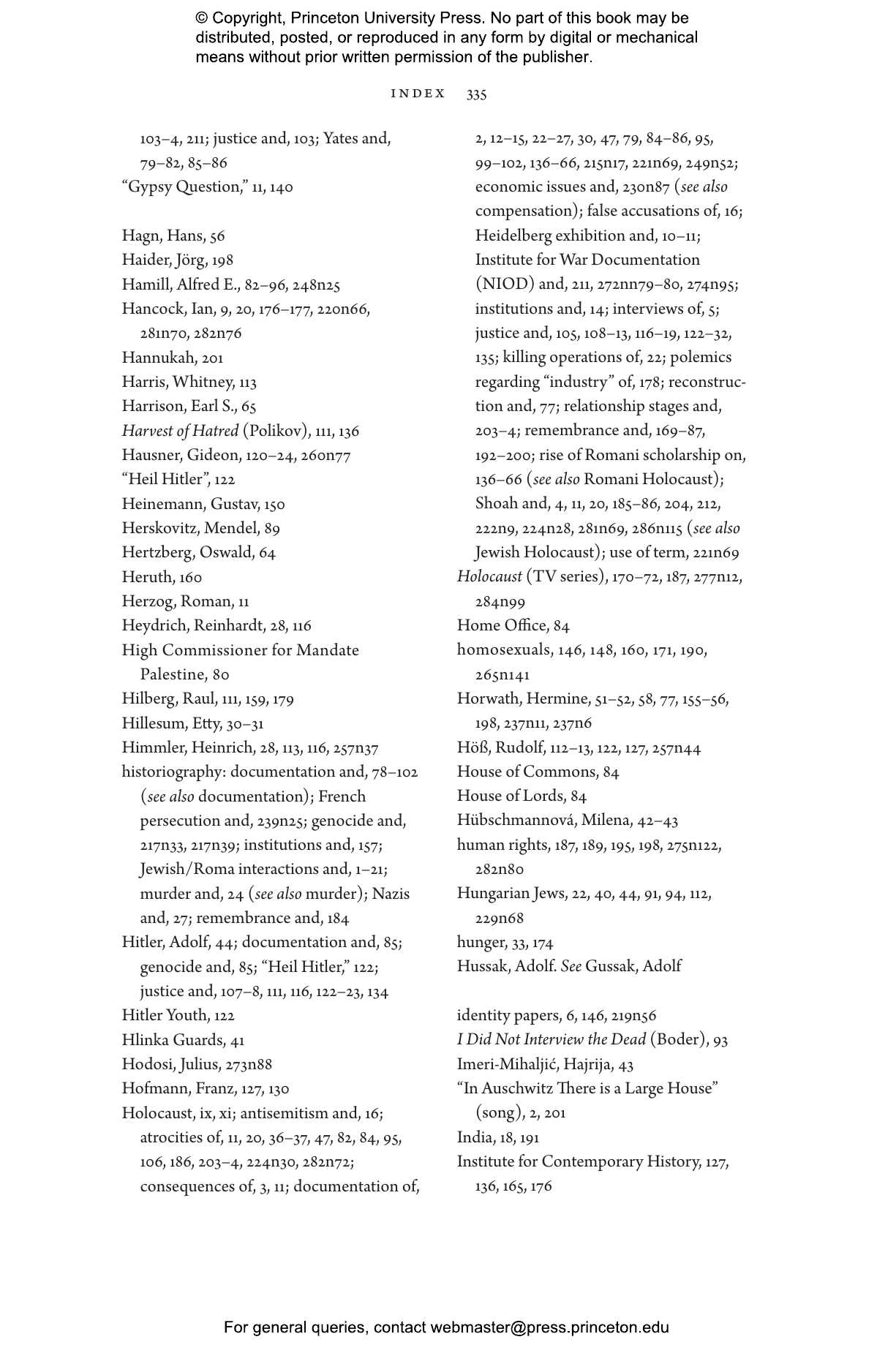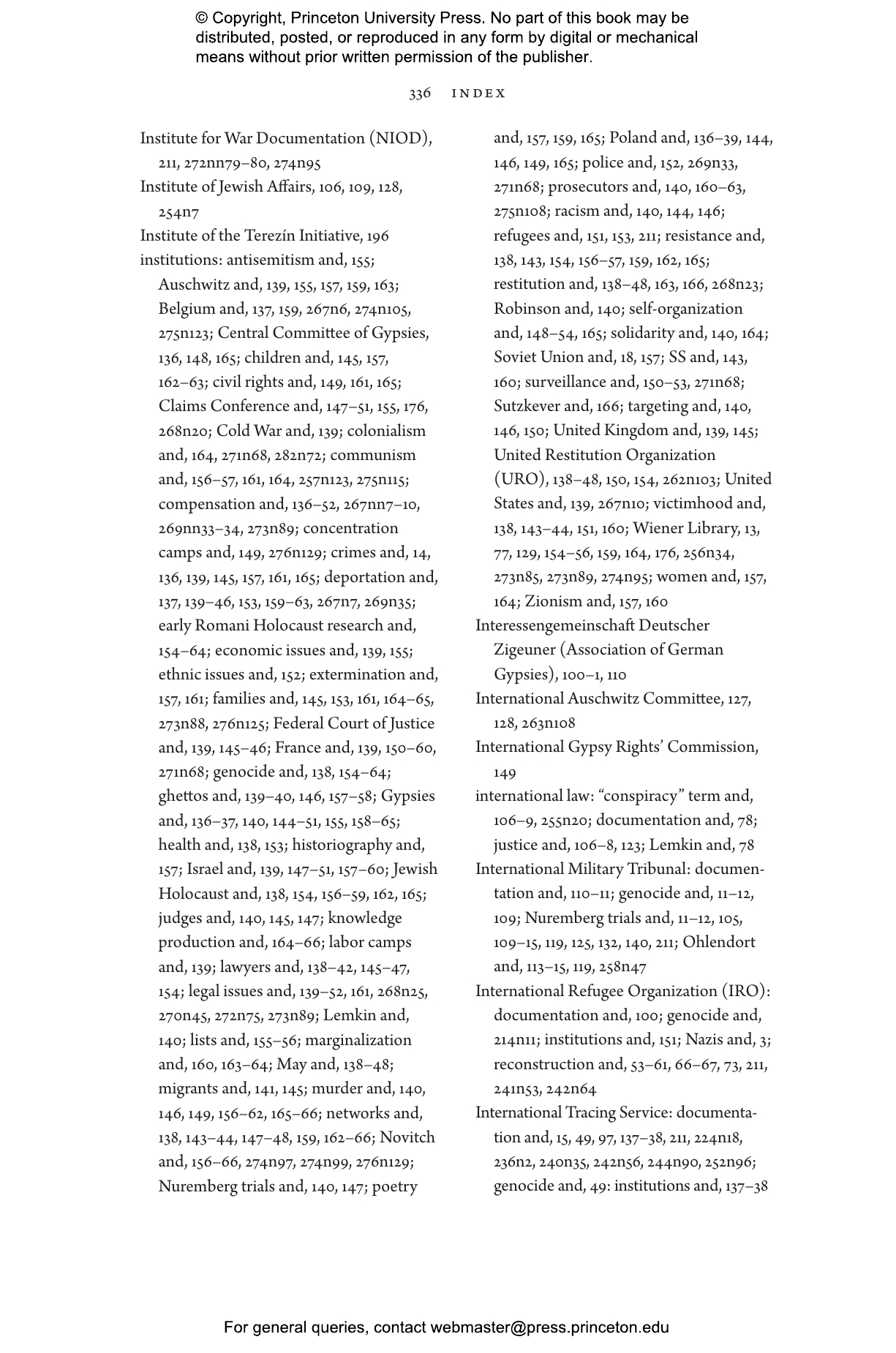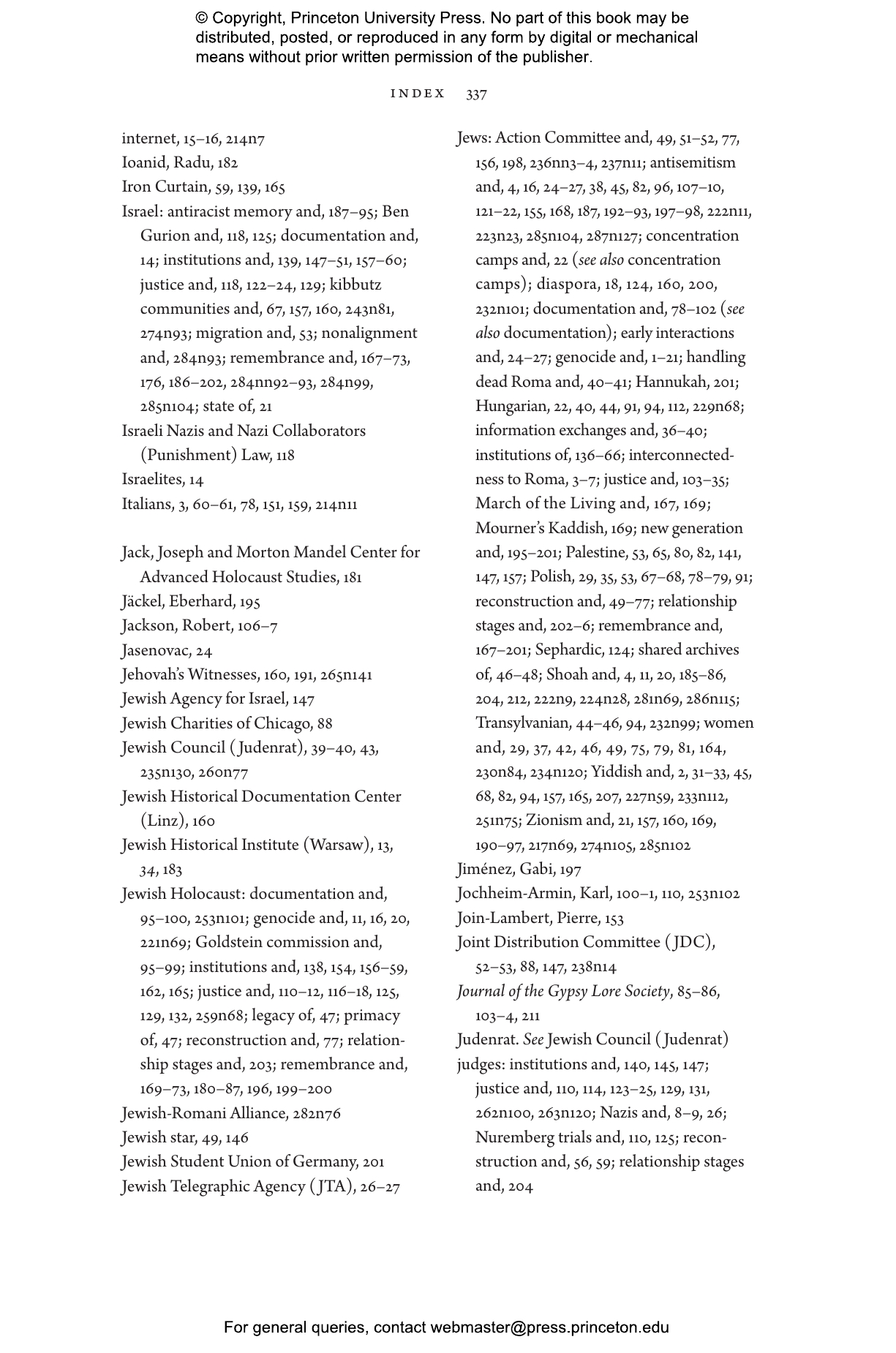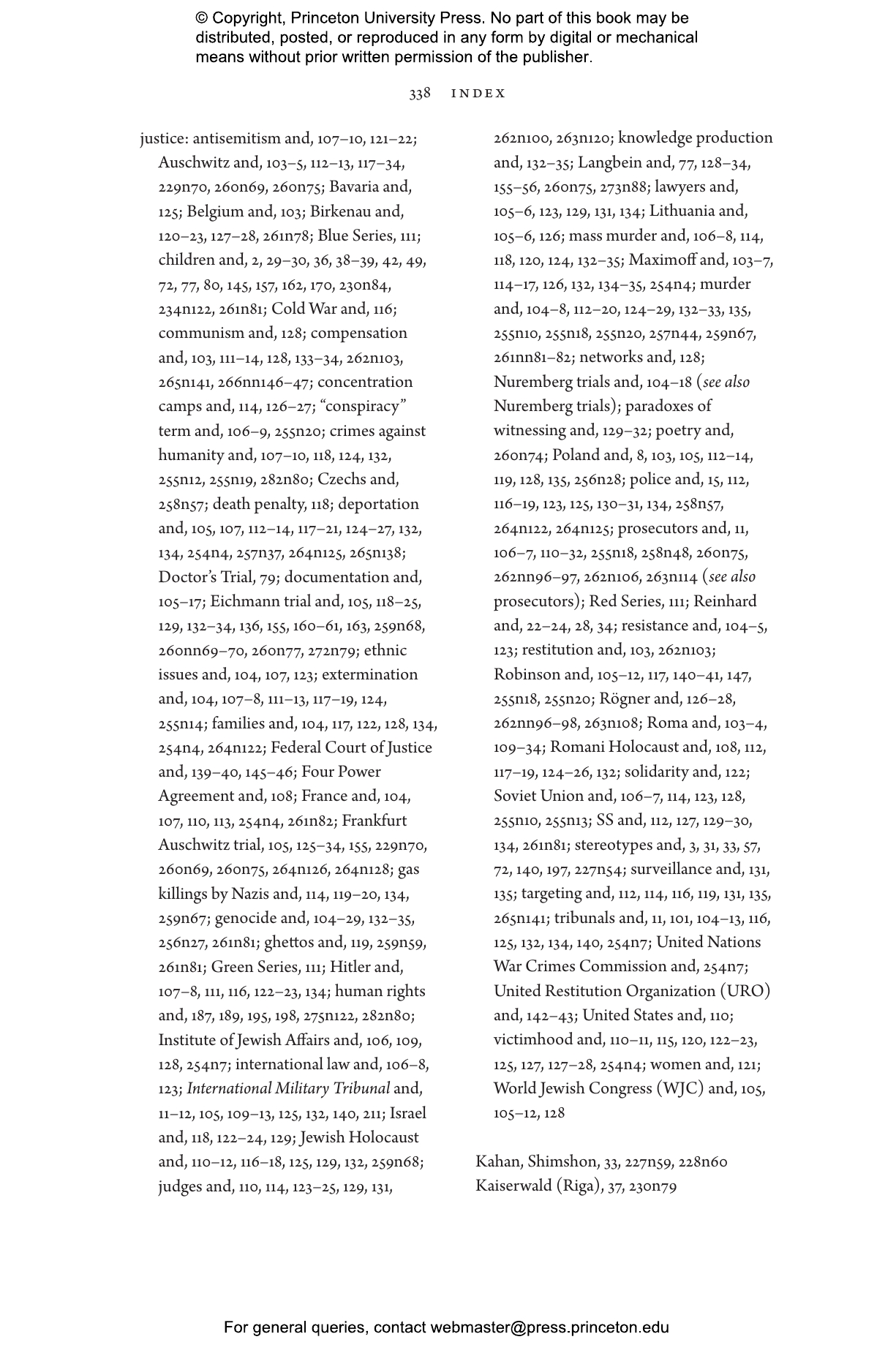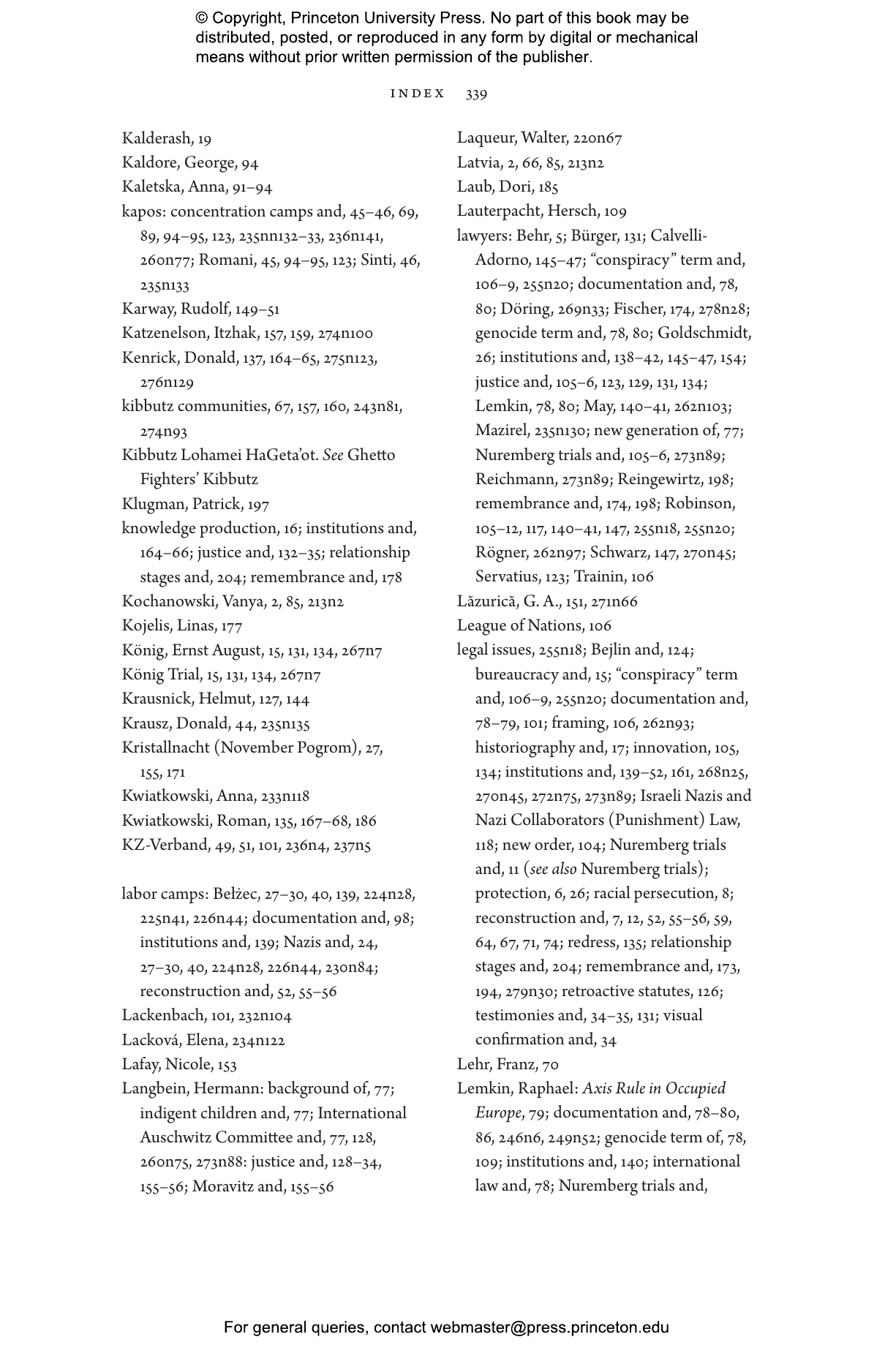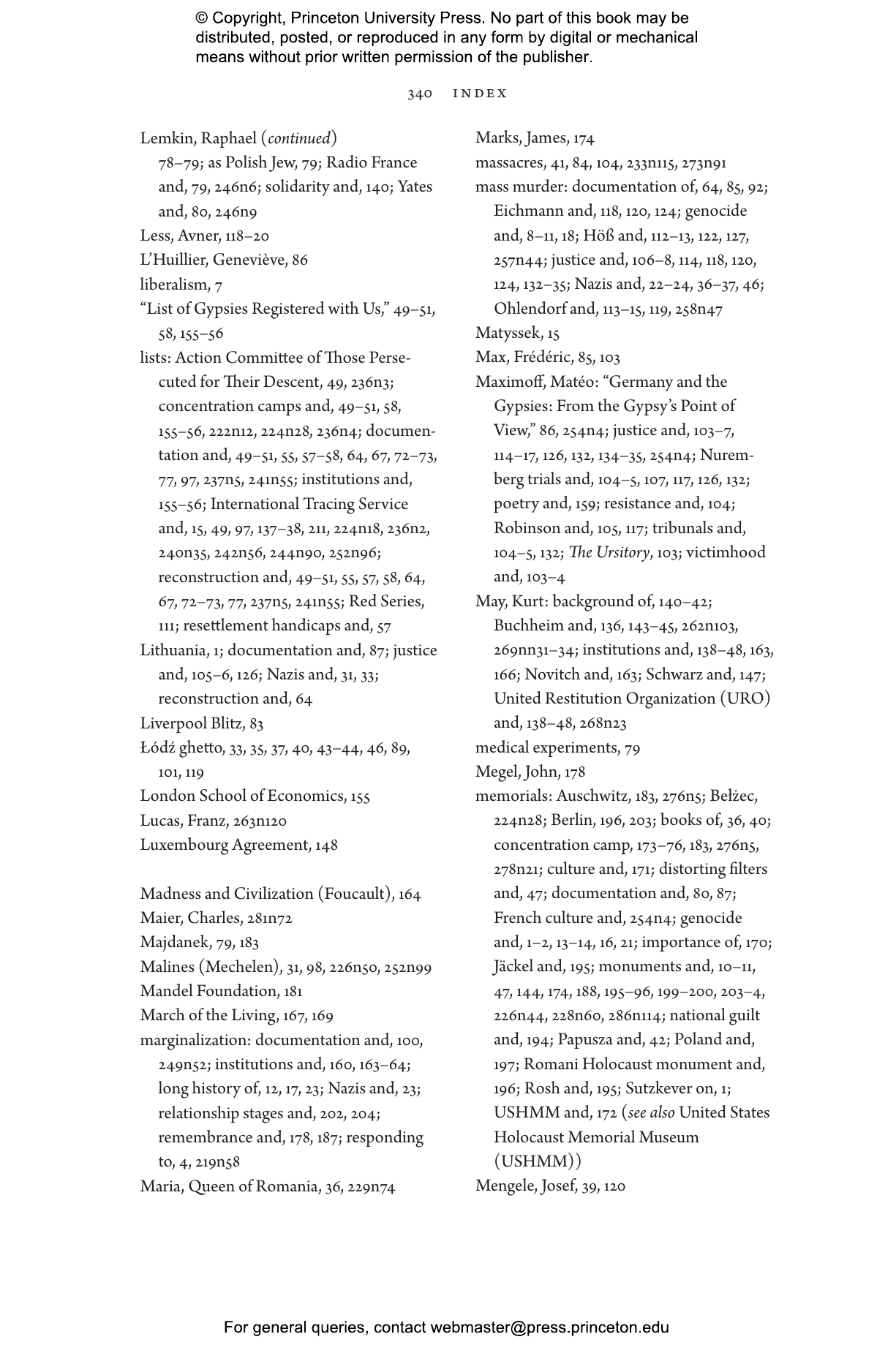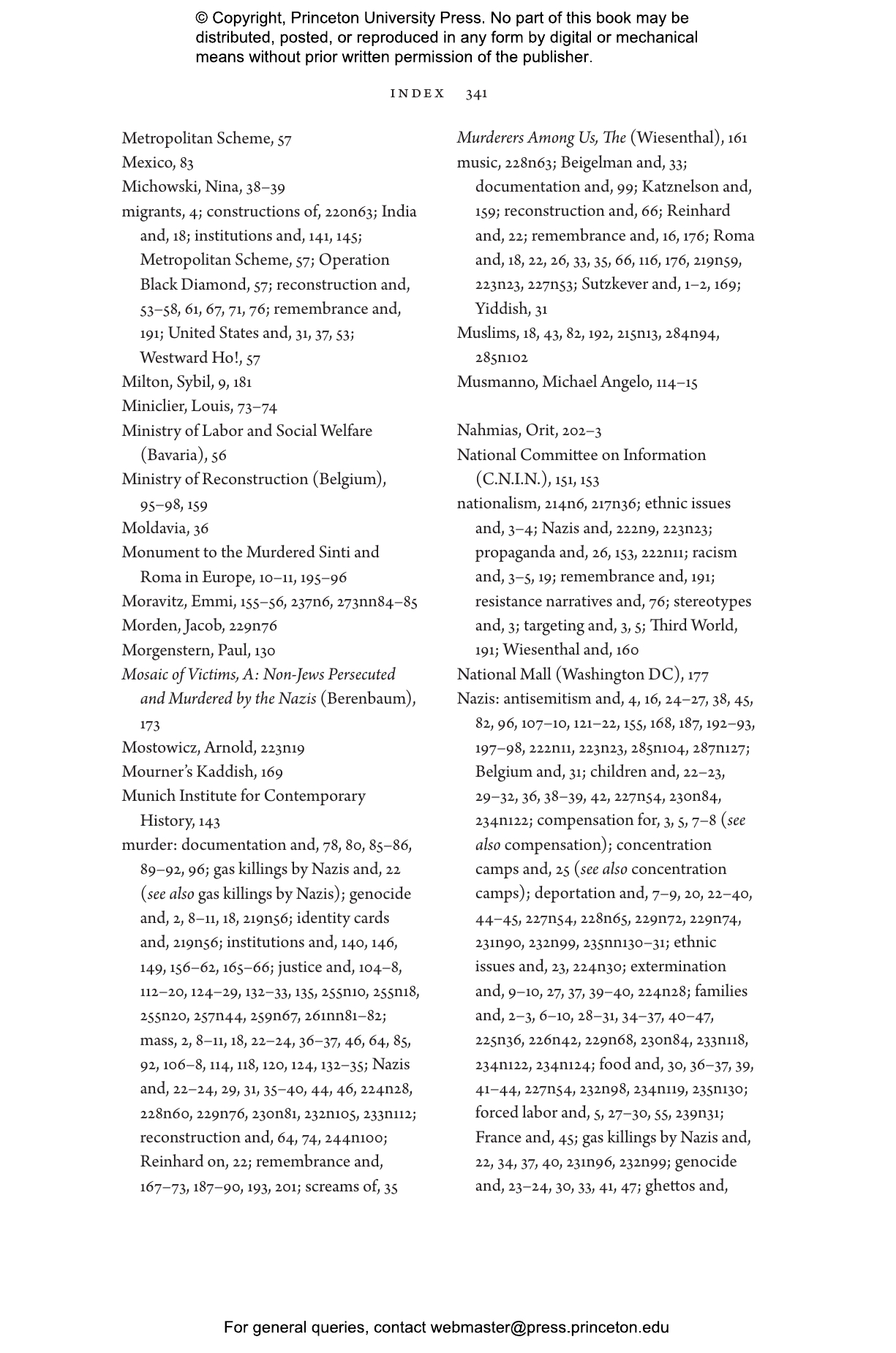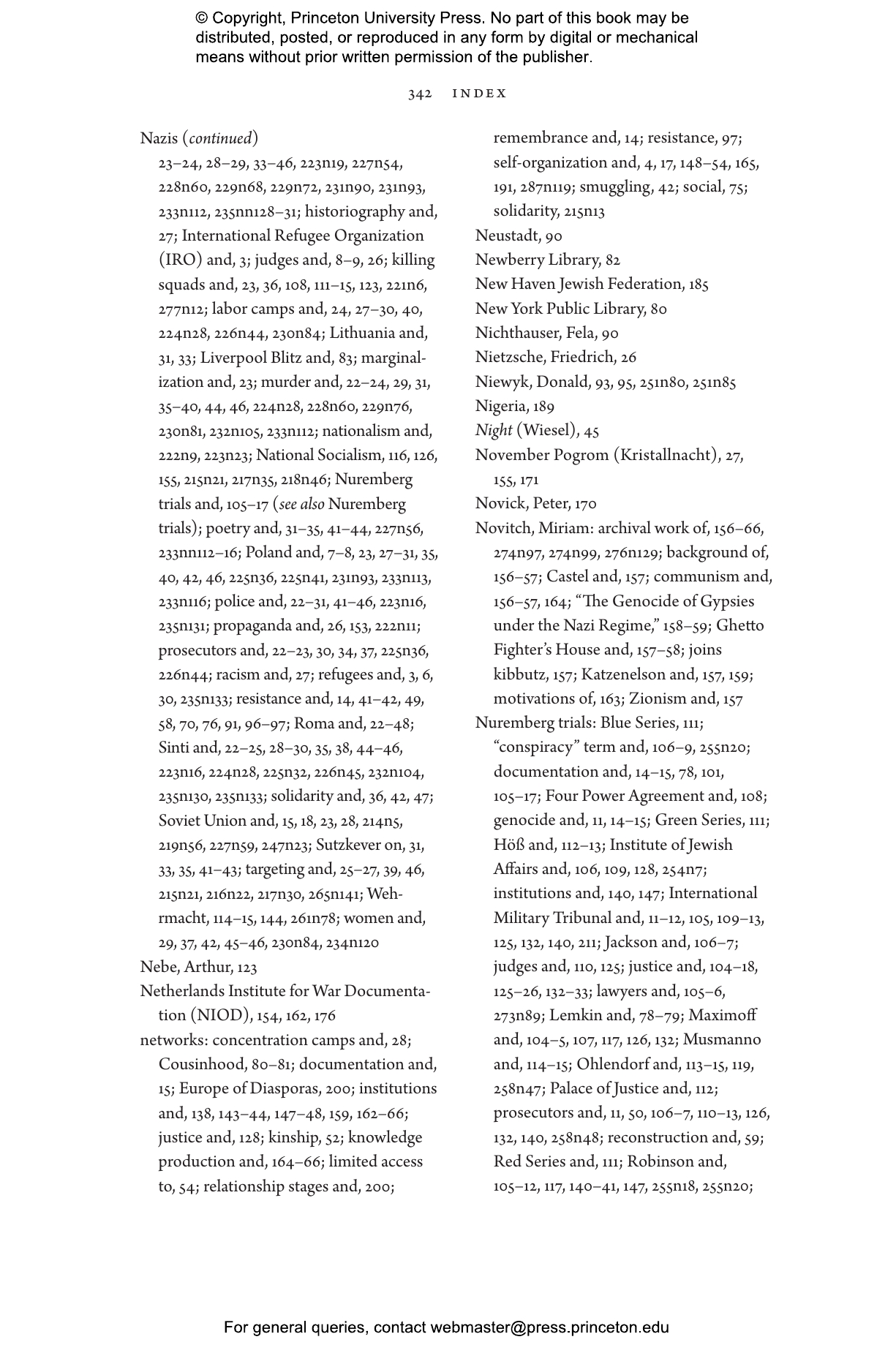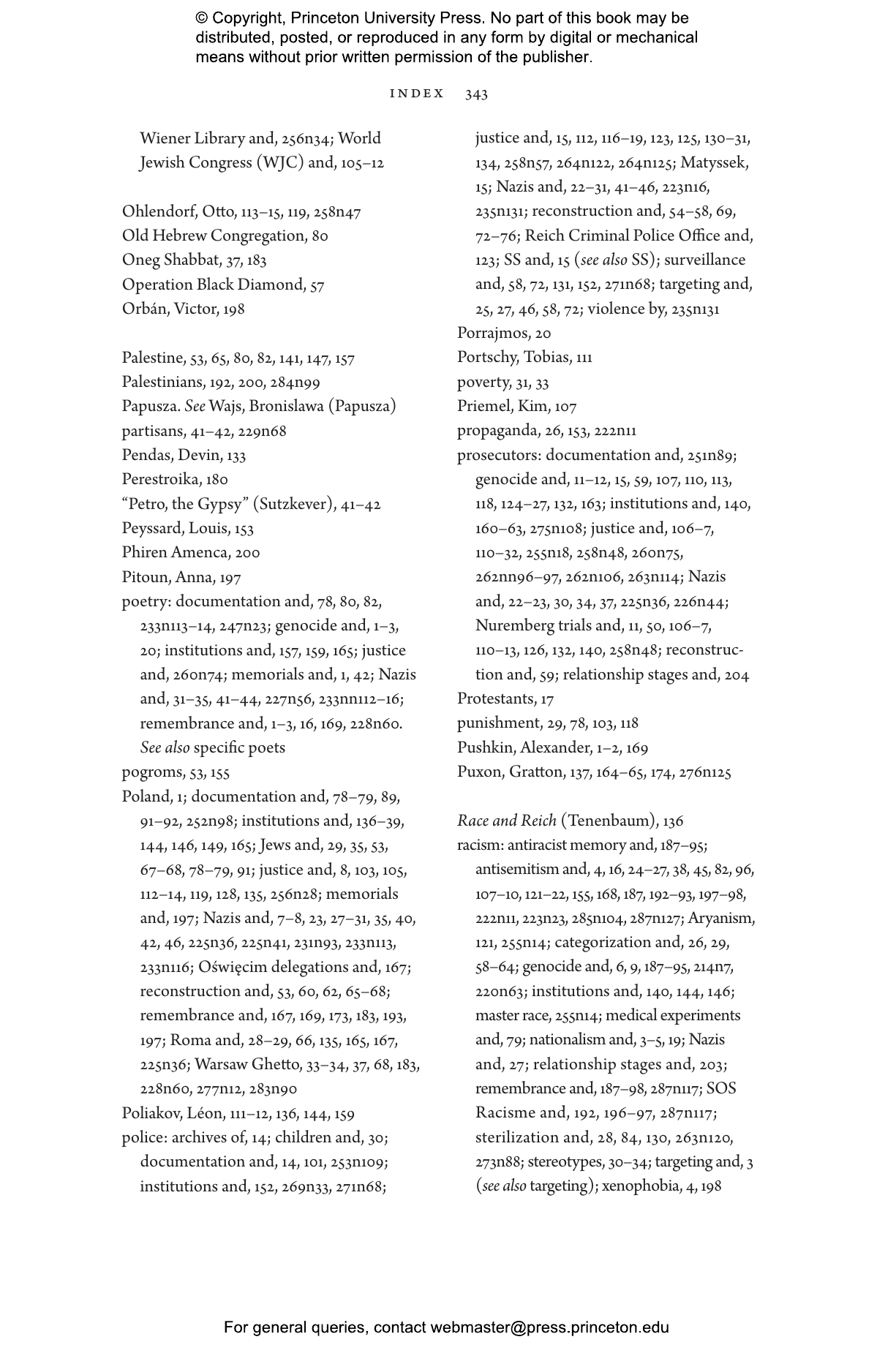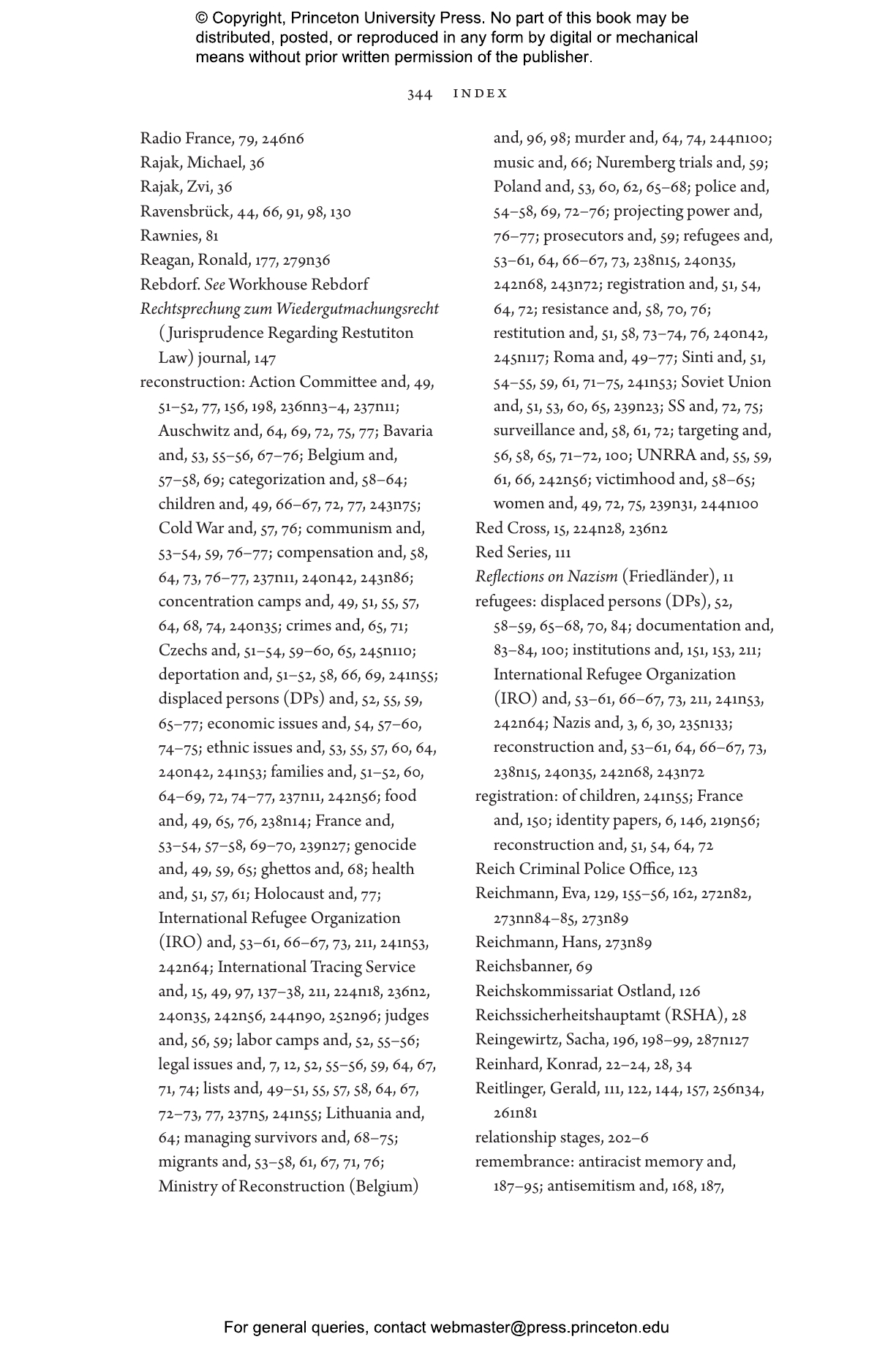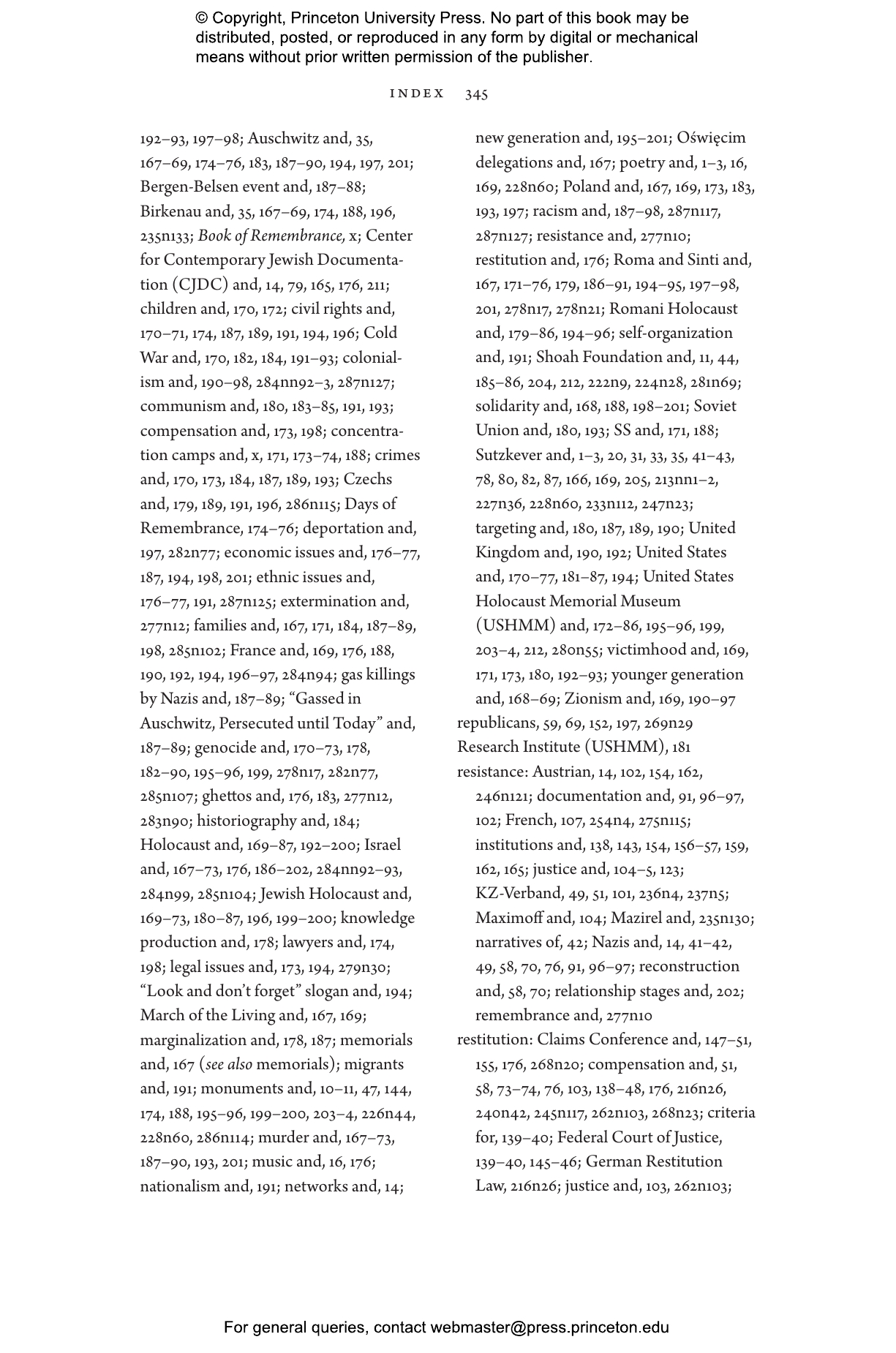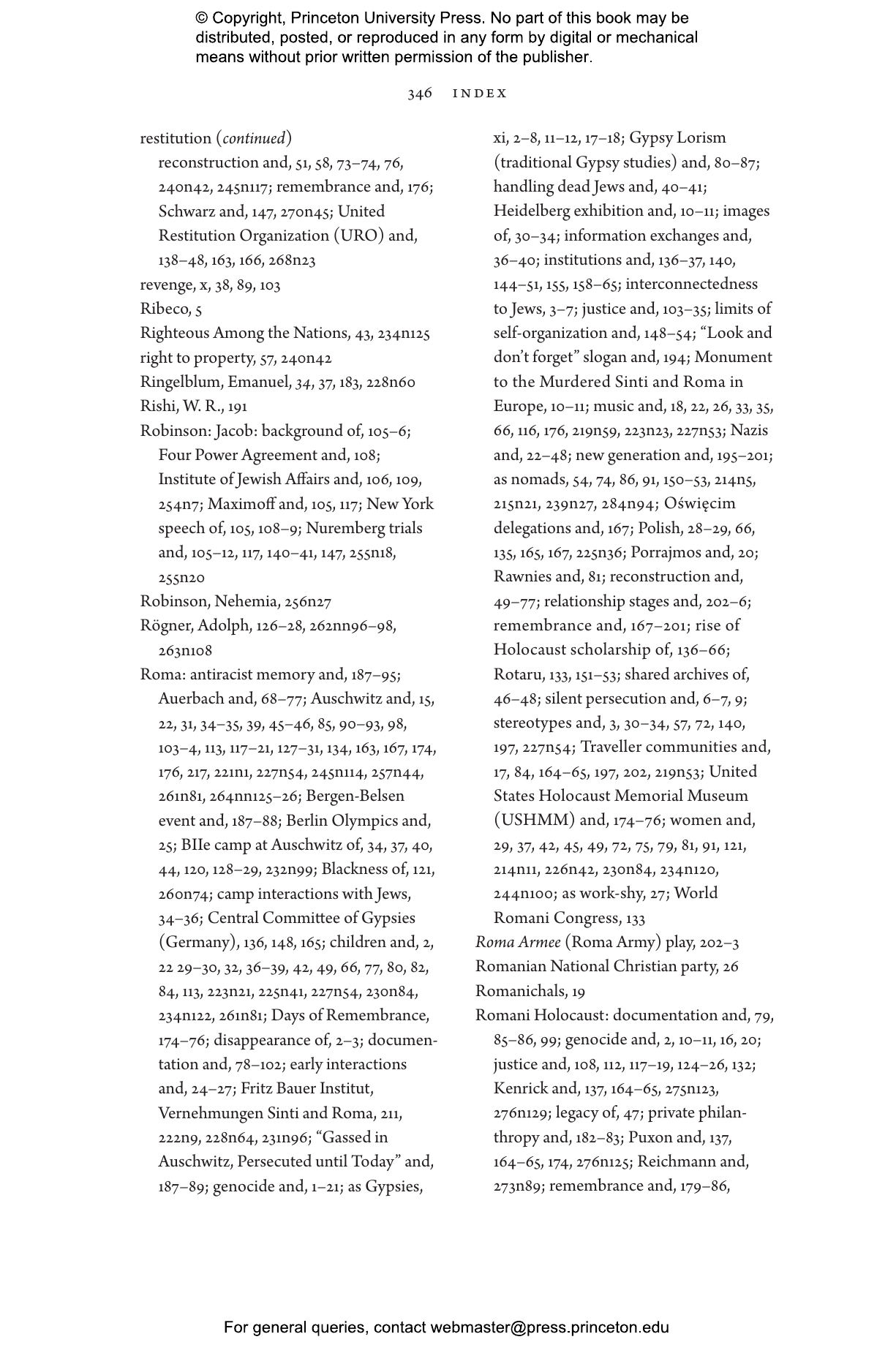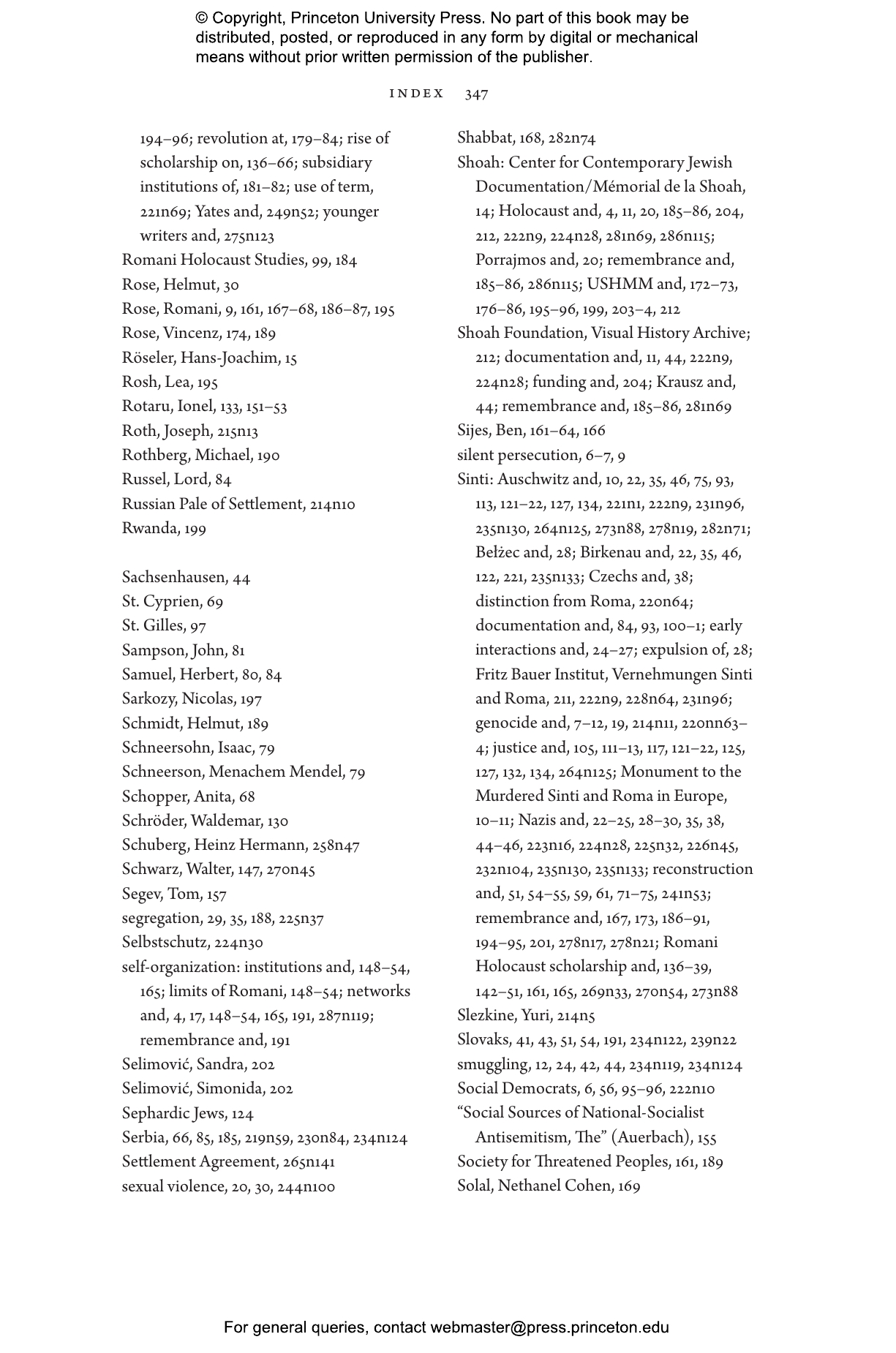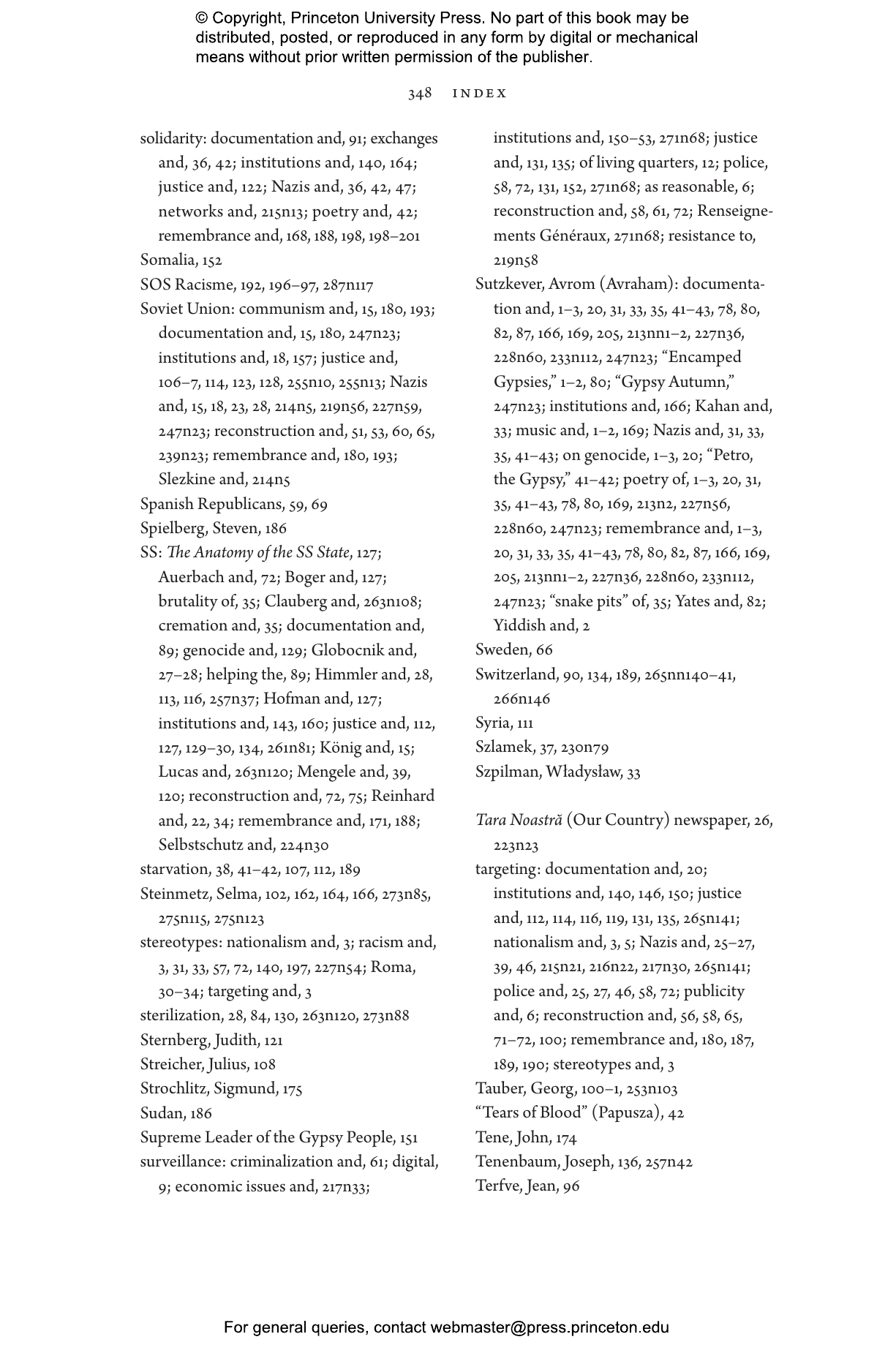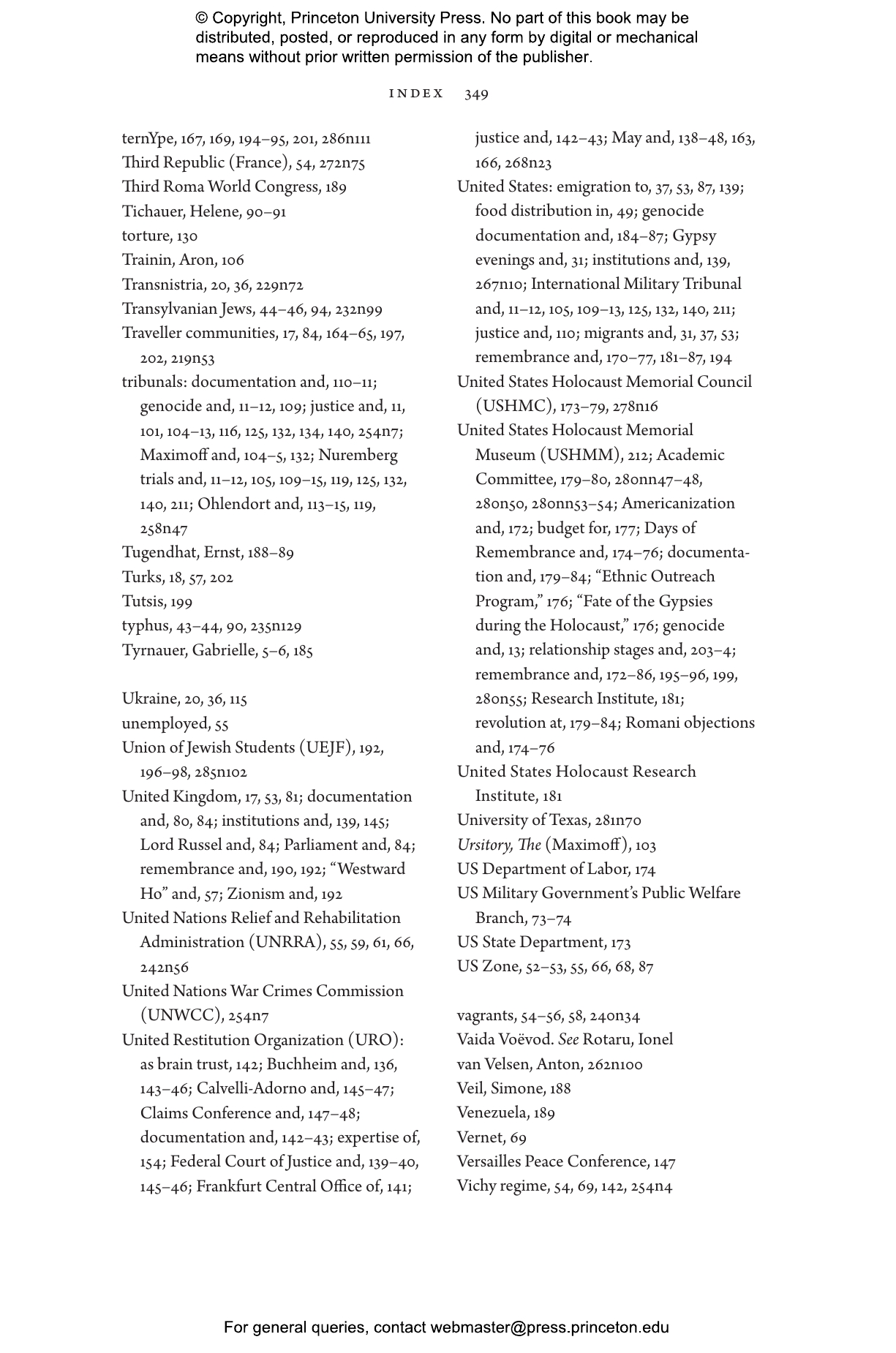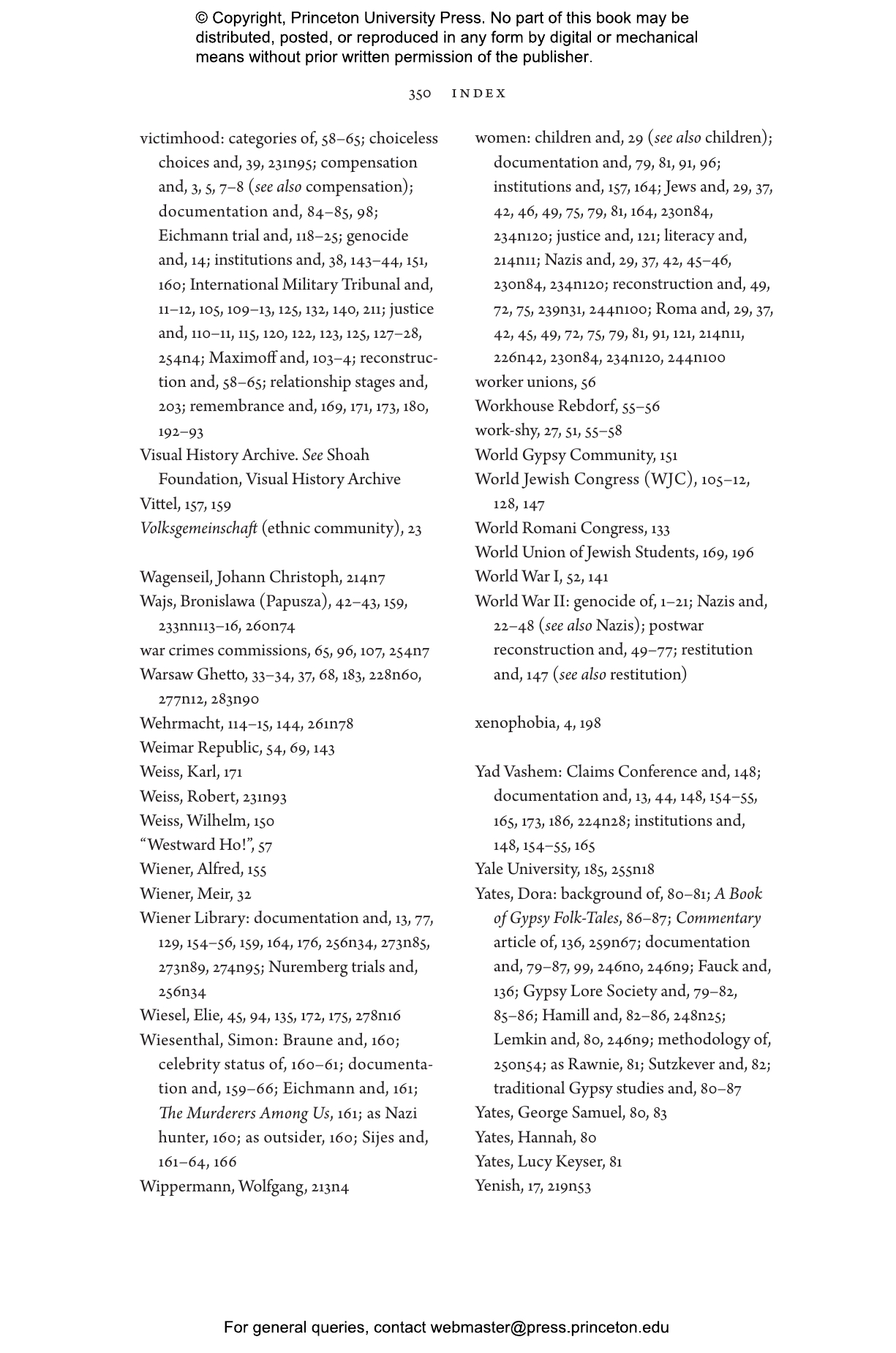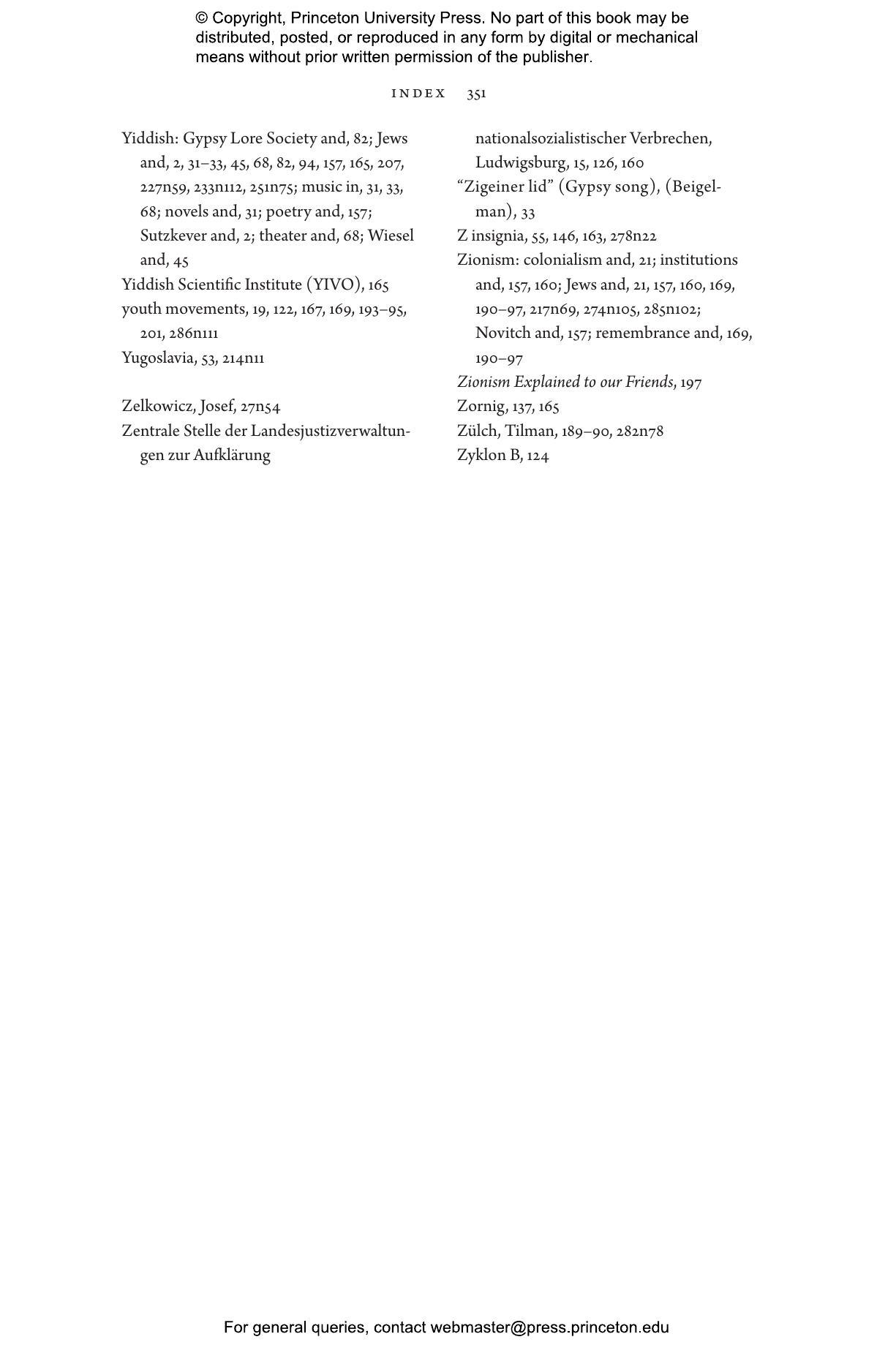Jews and Roma died side by side in the Holocaust, yet the world did not recognize their destruction equally. In the years and decades following the war, the Jewish experience of genocide increasingly occupied the attention of legal experts, scholars, educators, curators, and politicians, while the genocide of Europe’s Roma went largely ignored. Rain of Ash is the untold story of how Roma turned to Jewish institutions, funding sources, and professional networks as they sought to gain recognition and compensation for their wartime suffering.
Ari Joskowicz vividly describes the experiences of Hitler’s forgotten victims and charts the evolving postwar relationship between Roma and Jews over the course of nearly a century. During the Nazi era, Jews and Roma shared little in common besides their simultaneous persecution. Yet the decades of entwined struggles for recognition have deepened Romani-Jewish relations, which now center not only on commemorations of past genocides but also on contemporary debates about antiracism and Zionism.
Unforgettably moving and sweeping in scope, Rain of Ash is a revelatory account of the unequal yet necessary entanglement of Jewish and Romani quests for historical justice and self-representation that challenges us to radically rethink the way we remember the Holocaust.
Awards and Recognition
- Winner of the Ernst Fraenkel Prize, Wiener Holocaust Library
- Finalist for the National Jewish Book Award, Holocaust Category
- A Choice Outstanding Academic Title of the Year
- Winner of the George L. Mosse Prize, American Historical Association
- Finalist for the Jordan Schnitzer Book Award, Association for Jewish Studies
- Finalist for the Yad Vashem International Book Prize for Holocaust Research
"An astonishing breadth of interviews of survivors and their relatives. . . . Of profound interest to serious students and readers of history."—Library Journal
"Joskowicz offers a fascinating and often heartbreaking account of the Roma struggle for justice and restitution in the face of persecution. . . . The great virtue of Joskowicz’s book, alongside the comprehensiveness of its research, is its refusal to reduce any of the weighty issues it discusses to abstractions, or to stray from the complex and often contradictory human experiences at stake. Instead, Joskowicz grounds his account in the lives of the people whose suffering and whose activism animate his scholarship."—Daniel Kraft, Slate
"A clear, flowing portrait of this understudied but deeply violated population that fundamentally alters our perception of the Holocaust, enlarging it to include the Romani victims and bringing to the fore their quest for historical justice and self-representation. . . . [An] illuminating new book."—Linda F. Burghardt, Jewish Book Council
"Remarkable. . . .At a time when Holocaust parallels have become once again contentious and politicised, Joskowicz’s book builds a refreshing case for careful and nuanced historical comparison."—Dr Christine Schmidt, BBC History Magazine
"[Joskowicz] brings new focus to the testimonies of victims of the Nazi regime, especially the stories of long-ignored Romani victims, often gathered from the witness testimonies of and interviews with Jewish survivors of the camps. . . . A deeply important book for the questions it raises about the ways in which historians collect and analyze history."—Choice Reviews
"It is rare for an academic text to be highly readable, accessibly written, and an important work of historical scholarship, but Ari Joskowicz’s Rain of Ash: Roma, Jews, and the Holocaust ticks all three of these boxes. . . . This book is an absolute must-read. Ultimately, Rain of Ash is a completely novel achievement, a real boon to multiple fields of study, and well worth your time."—Claire Greenstein, Ethnic and Racial Studies
"Incisive. . . . Joskowicz grapples with fundamental issues in the field of memory studies, namely, what and how we remember, and the way that a politicization of memory can destabilize or challenge dominant narratives of history. . . . A significant and poignant contribution to the field of Holocaust (and Romani) Studies."—Natasza Gawlick, Journal of Austrian Studies
"Time and eloquent. . . . Each chapter of Rain of Ash offers new and sometimes surprising data and insights, to which a short review cannot do justice. It draws on adventurous research in archives all over the world and on digitised sources which have become available in recent decades. Joskowicz has exploited these imaginatively to identify the personalities and reconstruct the interactions that drove institutional and political engagement with the facts and significance of the Romani Holocaust between 1945 and the 2010s. He displays an admirable sensitivity to the challenges as well as the opportunities offered by this expanding source base, and he writes with an analytical clarity that is simultaneously humane and even-handed."—Eve Rosenhaft, Continuity and Change
"Exceptional. . . . Joskowicz’s study is a testament to the interconnectedness of these two communities and underscores the imperative of acknowledging and rectifying historical injustices."—Justyna Matkowska, Jewish History
"In Rain of Ash, Ari Joskowicz has written one of the most remarkable books of the past few years. The monograph tells an original and outstandingly researched story about how the Nazi murder of the Roma has become a footnote in our understanding of the Holocaust. . . .A superbly interesting book teeming with detail and fascinating characters—some totally unknown people, and others that are well known, but here presented in a totally different light."—Anna Hájková, German History
"Groundbreaking, well-researched, and long overdue, crucially attending to Romani history during the Holocaust and to its interconnectedness with Jews’ and other groups’ experiences."—Margareta Matache, Holocaust and Genocide Studies
“Powerful and courageous. Rain of Ash is necessary reading for anyone who wants to understand the wartime experiences of Roma and Jews and their effects on financial, legal, political, and academic representation.”—Angéla Kóczé, coeditor of The Romani Women’s Movement: Struggles and Debates in Central and Eastern Europe
“A revealing and original book about an understudied aspect of the Holocaust. Highly recommended.”—Jan T. Gross, author of Neighbors: The Destruction of the Jewish Community in Jedwabne, Poland
“A major contribution. This original and much-needed book shows how the experiences of Roma and Jews have always intersected, for good or ill, from the time of the Holocaust to today’s complex memory debates.”—Dan Stone, author of The Liberation of the Camps: The End of the Holocaust and Its Aftermath
“Joskowicz’s book represents the best kind of entangled history. It is chock-full of insights, opening our eyes to the ways in which Roma have had to negotiate their place in the history and memory of the Holocaust.”—Mark Roseman, author of Lives Reclaimed: A Story of Rescue and Resistance in Nazi Germany
“Rain of Ash shows us that the Holocaust and the Nazi persecution of Roma and Sinti are entangled events in the deepest sense of the term. Joskowicz has written a stunning work of scholarship: erudite, even-handed, and human to the core.”—Yair Mintzker, author of The Many Deaths of Jew Süss: The Notorious Trial and Execution of an Eighteenth-Century Court Jew
“Rain of Ash is a brilliant and provocative account of Jewish and Romani efforts to document and commemorate the Holocaust. This is a landmark contribution to both Jewish and Romani history and essential reading for anyone interested in the history of Europe.”—Tara Zahra, author of The Great Departure: Mass Migration from Eastern Europe and the Making of the Free World
“In this pathbreaking, innovative book, Joskowicz shows how Roma and Jews emerged from unequal histories but suffered next to each other during the Nazi regime’s murderous attack. In the postwar era, both groups—with vastly uneven resources—tried to recover, demand justice, and memorialize their dead. Eloquently written and imaginatively conceived, Rain of Ash highlights the entangled history of Romani-Jewish relations, scholarship, and memories. A must-read!”—Marion A. Kaplan, author of Between Dignity and Despair: Jewish Life in Nazi Germany
